Descargar con scribd.com
Descargar con google.com
En poursuivant votre navigation sur ce site, vous acceptez l'utilisation de cookies. Ces derniers assurent le bon fonctionnement de nos services. En savoir plus.
09:52 Publié dans Evénement, Hommages, Nouvelle Droite | Lien permanent | Commentaires (0) | Tags : dominique venner, nouvelle droite, hommage, événement, italie, cave |  |
|  del.icio.us |
del.icio.us |  |
|  Digg |
Digg | ![]() Facebook
Facebook
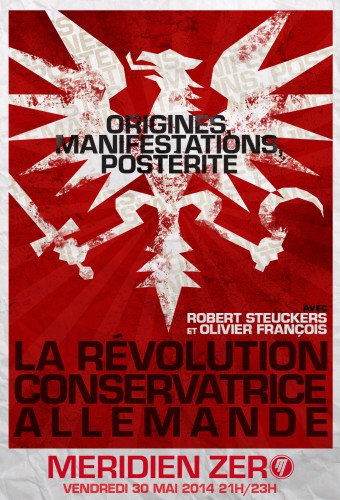 Méridien Zéro: Emission n°191
Méridien Zéro: Emission n°191
Ce vendredi, Méridien Zéro vous propose un entretien avec Robert Steuckers, largement soutenu par Olivier François, sur la Révolution Conservatrice allemande, phénomène polymorphe encore largement méconnu en France.
A la barre, monsieur PGL ; à la technique, JLR et son studio volant.
Pour écouter: http://www.meridien-zero.com/archive/2014/05/30/emission-...
ATTENTION ! A notre très vif désagrément, il semble que notre studio volant ait dysfonctionné, n'enregistrant pas le début de notre émission consacrée aux origines de la RC, en particulier le romantisme allemand. Nous avons tout de même fait le choix de diffuser cet enregistrement amputé puisque Robert Steuckers y traite des manifestations et de la postérité de la RC. Nous vous prions d'accepter toutes nos excuses pour ce désagrément et nous espérons pouvoir réinviter Robert pour compléter ce sujet.
Entretien radiophonique avec Robert Steuckers
au sujet de la sortie de son ouvrage
"La Révolution conservatrice allemande - Biographie de ses principaux acteurs et textes choisis"
(éditions du Lore).
L'ouvrage est disponible sur le site des éditions du Lore : Editions du Lore
* * *

Table des matières
Les leçons de la « Révolution Conservatrice »
La « Révolution Conservatrice » en Allemagne (1918-1932)
Le mouvement métapolitique d’Engelbert Pernerstorfer à Vienne
à la fin du XIXe siècle, précurseur de la « Révolution Conservatrice »
Munich ou Athènes-sur-l’Isar : ville de culture et matrice
d’idées conservatrices-révolutionnaires
Les thèmes de la géopolitique et de l’espace russe
dans la vie culturelle berlinoise de 1918 à 1945
Karl Haushofer, Oskar von Niedermayer & Otto Hoetzsch
L’impact de Nietzsche dans les milieux politiques de gauche et de droite
Les matrices préhistoriques des civilisations antiques
dans l’oeuvre posthume de Spengler :Atlantis, Kasch et Turan
Révolution Conservatrice, forme catholique et « ordo æternus » romain
Rudolf Pannwitz : « mort de la terre », imperium Europæum
et conservation créatrice
Sur l’entourage et l’impact d’Arthur Moeller van den Bruck
Le visionnaire Alfred Schuler (1865-1923),
inspirateur du Cercle de Stefan George
Décision et destin soldatique durant la Première Guerre mondiale :
le cas Schauwecker
Annulation magique de la crise et « méthode physiognomique »
chez Ernst Jünger
Eugen Diederichs et le Cercle « Sera »
Boehm, Max Hildebert 1891-1968
Introduction à l’oeuvre de Ludwig Ferdinand Clauss (1892-1974)
Jakob Wilhelm Hauer (1881-1962) :
le philosophe de la rénovation religieuse
Edgar Julius Jung (1894-1934)
Friedrich-Georg Jünger (1898-1977)
Erwin Guido Kolbenheyer (1878-1962)
Alfred Schuler (1865-1923)
Christoph Steding (1903-1938)
Herman Wirth (1885-1981)
00:05 Publié dans Livre, Livre, Nouvelle Droite, Révolution conservatrice, Synergies européennes | Lien permanent | Commentaires (0) | Tags : nouvelle droite, synergies européennes, révolution conservatrice, robert steuckers, livre, allemagne |  |
|  del.icio.us |
del.icio.us |  |
|  Digg |
Digg | ![]() Facebook
Facebook
Histoire de la Belgique, par Robert Steuckers | 1/4 |
Antiquité et Moyen-Âge
Histoire de la Belgique, par Robert Steuckers 2/4
Le contexte de 1830
Histoire de la Belgique par Robert Steuckers 3/4
Le 20ème siècle
Histoire de la Belgique par Robert Steuckers 4/4
La situation actuelle
Emission réalisée
par Parrhésia-Belgique & le "Cercle des Volontaires"
(février 2014)
00:10 Publié dans Belgicana, Entretiens, Histoire, Nouvelle Droite, Synergies européennes | Lien permanent | Commentaires (0) | Tags : nouvelle droite, synergies européennes, robert steuckers, belgicana, belgique, histoire, entretien, europe, affaires européennes |  |
|  del.icio.us |
del.icio.us |  |
|  Digg |
Digg | ![]() Facebook
Facebook
00:06 Publié dans Eurasisme, Nouvelle Droite, Revue | Lien permanent | Commentaires (0) | Tags : elementos, nouvelle droite, nueva derecha, alexandre douguine, nouvelle droite russe, revue, russie, eurasisme, eurasie |  |
|  del.icio.us |
del.icio.us |  |
|  Digg |
Digg | ![]() Facebook
Facebook

par Guillaume Faye
Ex: http://www.gfaye.com
La position exprimée ici est différente de celle des anti-européistes (style FN ou UPR) ou de celle des fédéralistes qui sont trop entachées d’idéologie. On connaît les énormes inconvénients de l’UE : bureaucratie, Commission qui outrepasse ses droits, ”machin” constitutionnel illisible, déficit de démocratie, usine à gaz institutionnelle, impuissance à défendre l’intérêt des peuples, etc.
Pourtant l’UE a procuré nombre d’avantages dont ne parle jamais parce qu’ils sont intégrés dans le quotidien, notamment l’accroissement des échanges intereuropéens et la régulation bancaire. Affirmer, comme le fait le FN, que la ”crise” débutée en 2008 a été provoquée par la politique de l’UE, n’est pas sérieux. Elle a eu comme cause principale le système financier américain spéculatif, virtuel et dérégulé. Sans oublier l’endettement irresponsable de certains États.
Sortir de l’euro pour la France ? Pas très malin…D’abord, cela prendrait beaucoup de temps et pourrait provoquer un choc international de récession incontrôlable. Les USA et la Chine seraient d’ailleurs ravis d’un retour aux monnaies nationales en Europe, afin de rétablir le dollar et d’établir le yuan comme seules monnaies de transaction planétaire.
L’euro est trop cher et nuit aux exportations ? Pas si simple…. La France est déficitaire dans ses exportations/ importations même vis-à-vis des pays de la zone euro, qui sont largement majoritaires dans nos échanges extérieurs ! Et les pays de l’Eurozone (pas seulement l’Allemagne !) sont excédentaires dans leur balance commerciale avec le reste du monde. Donc le problème n’est pas l’euro surévalué – ne rejetons pas toujours la responsabilité sur les autres – mais la politique économique de la France, anti-compétitive : fiscalisme écrasant, découragement des investisseurs, charges sociales excessives, rigidité du marché du travail, marges des entreprises trop faibles pour assurer R&D et innovation, etc. Bref, le socialisme, générateur de chômage et de paupérisation, pratiqué par la droite comme par la gauche, est responsable du déclassement économique français, et non pas l’euro ou l’ ” austérité ” imposée par Bruxelles, comme le rabâchent les perroquets incompétents.
D’autre part, une sortie de l’euro et un retour aux monnaies nationales, en l’occurrence au franc, outre que le processus serait très difficile techniquement, auraient quatre inconvénients majeurs : 1) Baisse par dévalorisation, de 15% à 40% des retraites et des sommes épargnées placées en banque, pour tout le monde. 2) Doublement ou triplement des intérêts de la dette nationale et augmentation du principal d’au moins 10%, libellé en ”néofranc”. 3) Coût très important pour les PME du retour au Franc, administratif et comptable d’abord, en frais de change ensuite. 4) Explosion de l’inflation.
L’euro, en effet, garantit un faible niveau d’inflation et la stabilité des revenus d’épargne. Inconvénient : une monnaie unique pour des pays économiquement très différents, l’euro étant en fait l’”euro-mark”. En réalité, il ne fallait pas y entrer comme on l’a fait, pour des raisons politiques, mais il est très difficile d’en sortir, comme un chien dans le terrier d’une taupe. Alors que faire, pour changer de fond en comble l’UE, sans jeter le bébé avec l’eau du bain ?
J’ai longtemps cru qu’une Europe fédérale était possible, sur le modèle américain des États Unis d’Europe, voire sur la destruction des nations au profit des régions. Il faut savoir renoncer aux utopies en fonction de l’expérience. L’Europe historique n’a rien à voir avec la construction des USA. Voici (1) quelles pourraient être les bases d’une nouvelle Europe des Nations, beaucoup plus souple, pragmatique et concentrée sur l’essentiel que l’usine à gaz de l’actuelle UE, qui ne sait pas où elle va :
1) Suppression du Parlement européen, instance inutile, simulacre de démocratie.
2) L’Union européenne est dirigée par le Conseil de Gouvernement de l’Union qui comprend les chefs d’État et/ ou de gouvernement démocratiquement élus, qui décide à la majorité des 2/3. Il nomme les membres de la Commission européenne qui ne peut plus imposer aucune ”directive” de son initiative ni décider quoi que ce soit et se contente d’appliquer ses décisions.
3) Les compétences du CGU sont strictement limitées aux domaines suivants : a) la concurrence intérieure et le marché intérieur ; b) le commerce extérieur ; c) l’agriculture et la pêche ; d) l’industrie, les transports et les infrastructures ; e) la politique énergétique et l’environnement ; f) la politique fiscale et sociale ; g) la recherche, l’économie numérique et la coopération universitaire ; h) la politique monétaire des États ayant choisi l’euro et la réglementation bancaire. La politique étrangère, la politique d’immigration, les normes judiciaires et pénales, les questions ”sociétales” ne relèvent que des États.
4) Les décisions du CGU ne sont applicables dans les pays membres (transposables dans leurs lois et règlements) qu’après une approbation par chaque Parlement national. Les Parlements nationaux prévalent en tout domaine.
5) Suppression de la Cour de justice de l’Union européenne (CJUE) et de la Cour européenne des Droits de l’homme (CEDH), ainsi que des postes de Président de l’UE et de délégué aux Affaires étrangères.
6) Tout État peut sortir des accords de Schengen et rétablir les contrôles de personnes aux frontières et les règles d’admission, y compris pour les personnes provenant de l’UE. De même, chaque État est totalement libre de définir ses règles d’acquisition de la nationalité et de régime social pour les étrangers.
7) La Banque centrale européenne (BCE) n’est plus indépendante. Elle applique la politique monétaire vis à vis de l’ euro définie par le CGU, limité aux États membres de l’Eurogroupe.
8) L’élaboration d’une politique étrangère commune comme d’une politique de défense indépendante s’étant révélée, par expérience, impossible, il est créé entre les États qui le veulent une Communauté européenne de Défense (CED) totalement indépendante de l’OTAN ; elle est dotée de moyens militaires classiques, à l’exclusion de la dissuasion nucléaire.
9) Vote unanime du CGU et de tous les Parlements nationaux pour l’adhésion d’un nouveau membre.
Dans cette perspective, quels seraient les objectifs principaux d’une nouvelle UE, d’une Europe des Nations ?
1) Assurer l’existence d’un marché intérieur de libre-échange de biens, de services et de capitaux – mais pas obligatoirement de travailleurs, sauf accords libres interétatiques – dans l’espace de la nouvelle UE.
2) Instituer une préférence économique européenne (”espace économique européen”), avec protectionnisme et contingentements aux frontières communes et obligation de réserver 60% des marchés publics aux entreprises européennes. (2)
3) Laisser libres les États souverains de négocier entre eux tous les autres modes de coopération et d’initiatives.
4) Développer une vision de l’Union européenne découplée de Washington (sans hostilité) mais cherchant une alliance privilégiée avec la Russie et se préservant de toute immigration extérieure invasive.
Ces propositions s’inscrivent dans une vision souple et pragmatique de l’Europe des Nations, très éloignée du système illisible de l’UE actuelle qui est l’otage de l’eurocratie, c’est-à-dire d’une oligarchie transnationale, composée de réseaux politiciens, médiatiques et technocratiques alliés. L’idée d’une Europe fédérale avec une trentaine d’États et autant de langues (3) appartient au domaine de l’utopie, comme le fut l’Union soviétique. L’idée européenne possède une portée historique exceptionnelle (4), mais elle été mal initiée et pervertie, comme une potion qui rend malade et ne guérit pas. Voilà pourquoi, il faut tout reprendre à zéro, sans démagogie, avec patience et détermination.
Notes:
(1) Cf. Mon Programme. Éd. du Lore.
(2) Comme cela a cours aux USA, en Chine, au Japon, etc.
(3) Sauf le basic English comme idiome commun
(4) Cf. mon ancien essai Nouveau discours à la Nation européenne, réédité.
00:05 Publié dans Actualité, Affaires européennes, Nouvelle Droite | Lien permanent | Commentaires (0) | Tags : europe, affaires européennes, union européenne, guillaume faye, nouvelle droite, européisme |  |
|  del.icio.us |
del.icio.us |  |
|  Digg |
Digg | ![]() Facebook
Facebook

« Un livre-choc, un coup de fouet
pour l’esprit critique,
un manifeste qui fera date
et qu’il faut lire d’urgence,
où l’auteur formule des visées inscrites
dans le droit fil de son seul vrai maître :
Friedrich Nietzsche »
L’essayiste Guillaume Faye est revenu au combat des idées avec de nouvelles munitions idéologiques, de nouveaux concepts que certains jugeront révolutionnaires ou subversifs. En des temps où les enjeux et les dangers se précisent, il prône une pensée « dure ».
Quel est son objectif ?
Celui d’ouvrir des pistes inimaginables et impensables il y a quelques années… Sa thèse centrale est que le monde actuel se dirige vers une « convergence des catastrophes », un séisme de civilisation, et que la loi du monde de l’après-chaos – qui commence déjà à poindre – sera l’Archéofuturisme, un mélange détonant de techno-science et de retour aux valeurs ancestrales.
Fidèle à sa réputation sulfureuse, Guillaume Faye propose une réflexion radicale et provocatrice
Il offre les armes de la rébellion, de la libération et de la renaissance… Un livre politiquement incorrect ? Plus encore idéologiquement dissident, voire séditieux, face aux dogmes et à l’échec global de la « modernité ». Il propose des voies idéologiques inédites, comme la notion de « constructivisme vitaliste », propres à rassembler toutes les composantes d’une famille d’esprit et d’une sphère politique, en France et en Europe.
Un livre où il est exposé que nos racines ont de l’avenir si nous savons les métamorphoser et les projeter dans le futur. D’ores et déjà, la nouvelle notion d’archéofuturisme fait partie de l’arsenal d’un courant de pensée inédit.
L’Archéofuturismede Guillaume Faye, éditions de L’Æncre, collection « Politiquement incorrect », dirigée par Philippe Randa, 266 pages, 31 euros
BON DE COMMANDE
à renvoyer à : Francephi diffusion - Boite 37 - 16 bis rue d’Odessa - 75014 Paris - Tél. 09 52 95 13 34 - Fax. 09 57 95 13 34 – Mél. diffusion@francephi.com
Commande par internet (paiement 100 % sécurisé par paypal ou carte bancaire) sur notre site www.francephi.com
Je souhaite commander :
… ex de L’Archéofuturisme (31 euros)
Autres livres de Guillaume Faye :
… ex de Avant-Guerre. Chronique d’un cataclysme annoncé (31 euros)
… ex de Pourquoi nous combattons (31 euros)
00:05 Publié dans Livre, Livre, Nouvelle Droite | Lien permanent | Commentaires (0) | Tags : livre, nouvelle droite, guillaume faye, archéofuturisme |  |
|  del.icio.us |
del.icio.us |  |
|  Digg |
Digg | ![]() Facebook
Facebook
Ex: http://cerclenonconforme.hautetfort.com
Dans le cadre de l'hommage national à Dominique Venner, les membres du réseau, lecteurs du CNC, nous ont adressé un témoignage de quelques lignes sur le thème "Dominique Venner et vous". Chacun a ainsi pu livrer un souvenir ou un rapport particulier au personnage et à son œuvre. Ces témoignages permettront à chacun de se faire une idée sur l'influence de Dominique Venner, dont le geste final reste gravé en chacun de nous.
DOMINIQUE VENNER, PRESENT !
« Dominique Venner était quelqu’un qui m’était assez antipathique. Sa posture prussienne était trop étrangère à ma nature latine et son anti-christianisme virulent ne pouvait que me heurter. J’avais cependant été marqué par « Un cœur rebelle » et par « Pour une critique positive » qui sont pour moi deux textes fondamentaux. Mais c’est indéniablement son sacrifice qui l’a fait entrer dans un cercle très restreint, celui des hommes qui mettent leur peau au bout de leurs idées. Sa mort a prouvé – ou tenté de prouver- que la politique n’était pas qu’un jeu, que tout cela n’était pas qu’une agitation, qu’un divertissement, que les mots pouvaient avoir des conséquences et les engagements des issues tragiques. Je suis catholique et ne cautionne pas l’idée de suicide, mais tous ceux qui, dans le confort de leurs certitudes bourgeoises, ont dénoncé, raillé ou conspué son geste ultime sont, pour moi, des ennemis intimes. »
Xavier Eman, journaliste non-conformiste
"Ce fut en premier lieu un livre sur les armes qui me fit connaître l'oeuvre de Dominique Venner. Ce dernier m'avait alors frappé par sa capacité à sortir des aspects techniques et "fana-mili" de la question pour aborder le rapport de l'homme européen à ses "jouets" favoris, ceci dans le cadre d'une véritable conception du monde où se mêlaient anecdotes signifiantes et références aux travaux d'éthologie d'un Konrad Lorenz. Coïncidence ou pas, quelques temps après, j'achetais mon premier numéro de la revue Eléments, premier jalon dans une longue quête qui allait me mener à l'avant-garde du combat métapolitique pour une certaine idée de la civilisation européenne. Je ne fut pas surpris alors de réaliser que Dominique Venner s'inscrivait peu ou prou dans cette phalange d'éveilleurs dont je dévorais avidement les articles et ouvrages, de Maît' Jean (Mabire) à Guillaume Faye en passant par Alain de Benoist ou Robert Steuckers. La bibliomanie et l'intense curiosité qui sont miennes m'ont mené depuis lors à me procurer la majorité des ouvrages publiés par l'auteur, avec une prédilection particulière pour ceux qui se placent sous l'égide de notre muse commune, la charmante et captivante Clio. Aussi, lorsque je découvris son inspirée Histoire et traditions des Européens, j'eus sur le moment l'impression que son auteur, du haut de sa morgue marmoréenne, m'avait un peu volé le maître-livre que mes tergiversations et un perfectionnisme contre-productif m'avaient empêché de mettre en chantier. Avec Le Siècle de 1914, Le Choc de l'Histoire et son posthume Samouraï d'Occident , il forme une tétralogie destinée à occuper les plus belles places dans les bibliothèques de tout "bon Européen". Lorsque mon vieil ami Arnaud de Robert me passa ce terrible coup de fil un funeste mardi de mai, un peu après 17h, une émotion intense et fiévreuse s'empara de moi pour ne plus me quitter pendant plusieurs jours : des mots (sacrifice, devotio), des noms (Mishima, Montherlant, Vieux Romains, Pinguet) émaillèrent la brève conversation avec celui qui m'apprenait la tragique nouvelle et me rappelait cette cardinale vérité que toute pensée digne de ce nom doit être mise en acte. Totalité organique de la plume et du pistolet ressuscitant une des plus belles figures de notre européanité traditionnelle : tout était accompli..."
Pascal Lassalle, historien, animateur sur Méridien Zéro et Radio Courtoisie
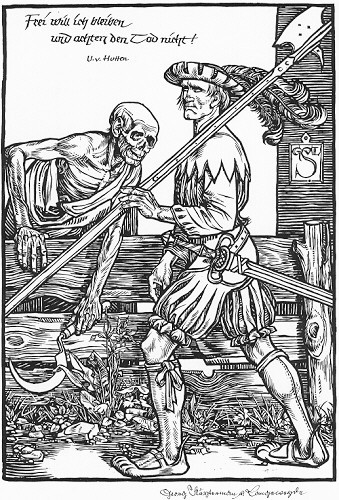
« Que ce soit dans ses livres, la Nouvelle Revue d'Histoire ou par ses actes, Dominique Venner incarna un idéal de virtus : intrépide aussi bien par les actes que par la pensée, rebelle mais toujours juste et mesuré, aimant mais sans romantisme ni mièvrerie, dévoué jusque dans la mort et cherchant toujours à dépasser les faux antagonismes pour en revenir à l'essentiel en toute chose : l'être. En cela il nous apprend, comme nous y enjoignait Nietzsche, à être de bons Européens. »
Mathieu, responsable M.A.S Méditerranée, section Var.
"Je savais ! Comme beaucoup de camarades, voila quelques années que je ne militais plus au sens littéral du terme. Certes je continuais de lire revues, livres et informations. Je participais parfois à certains événements et prenais toujours plaisir à échanger de belles discutions avec de vieux camarades. Plein de certitudes, et cet orgueil de l'initié recroquevillé sur lui même qui aime à flatter son égo. De belles phrases mises bout à bout, pour étayer un savoir qui s'affinait avec le temps ! Là-dessus il n'y a aucun doute, je savais ! Je savais comme tant d'autres que mon peuple se meurt, et que d'ici moins d'un siècle l'histoire nous aura oubliés. Je savais comme tant d'autres que nos traditions et notre héritage ne survivraient pas au totalitarisme qu'est le capitalisme ni à ses conséquences néfastes que sont l'immigration de masse et l’acculturation. Je savais que partout des Européens étaient exposés à la brutalité et à la cruauté de cette société. Plus je savais, plus je voulais en savoir, me drapant d'ego, persuadé d'être au dessus des masses abruties qui comblent le vide de sens de leur vie à coup d'alcool, de drogue, de consumérisme, de plaisirs faciles ou de télévision. Je savais et inconsciemment cela me suffisait. Mais il fut un jour particulier : le 21 mai 2013, un ancien, de la trempe de ces Hommes que l'Europe a su donner au cours des siècles, a terrassé en moi le dragon égotique. Analogie à Saint Michel et Apollon qu'il aurait fort probablement appréciée. Je me réveillai assommé, mes petites certitudes brisées en mille éclats. Je ne savais plus rien ! Si l'on juge un Homme à ses actions, alors j’étais au mieux un passionné d'histoire, d'économie, et de tradition. Un esprit curieux qui étalait dans son cercle d'amis proches ses quelques savoirs d'autodidacte, glanés au cours de lectures et d'échanges, alors même que les remparts de la cité en flamme étaient en passe de tomber. La mort de Dominique Venner a réveillé en moi la flamme du combattant. Le savoir se doit d’être au service d'un militantisme de combat. Une dévotion totale à une cause qui nous dépasse, et non une collection de petits savoirs pour flatter ses certitudes. Être un Homme européen se mérite ! Effort, rigueur, et ténacité. C'est la raison pour laquelle j'ai décidé de reprendre ma vie en main en rejoignant le MAS et en fondant dans le Gard une section. Finies les excuses, la résignation, ou l'auto-gratification, place à l'engagement personnel, seul à même de changer le cours de l'histoire."
Thibaut, responsable M.A.S Méditerranée, section Gard
"Je pense personnellement très souvent et régulièrement à Dominique Venner comme certains de mes proches le font de leur côté. Je pense aussi beaucoup à la seule mais mémorable fois où je l’ai rencontré. Je garde précieusement sa dédicace du « Cœur rebelle » par-devers moi et le souvenir de la soirée et des discussions passées avec lui et mes camarades présents ce soir-là. Les choses les plus importantes dans la vie étant d’abord intimes et non publique et politique comme l’a illustré la vie et l’œuvre de Dominique Venner. Le plus important dans la vie étant au cœur, qu’il soit rebelle ou contemplatif. Celui de Dominique Venner était les deux. Le plus important étant d’être et de durer. Le plus important étant le temps long, le temps de civilisation, comme nous l’a précisément explicité dans son œuvre Dominique Venner. Et le temps de civilisation doit devenir pour nous le temps militant."
Pierre-Antoine, responsable des Non-Alignés, Nice
"Si je devais retenir une seule chose chez l’œuvre fournie de Dominique Venner, c'est son livre "Histoire et traditions des Européens". Il porte en lui le feu Prométhéen de la longue mémoire de nos peuples, devenus les lotophages dont parlait Homère dans l'Odyssée. Je crois vraiment au pouvoir de ce livre quant à réveiller la fierté d'être un Européen chez le lecteur, comme il a su le faire chez moi, ainsi qu'inculquer le sens du devoir à tout ceux qui s'imaginent qu'ils n'ont que des droits."
Antoine, responsable M.A.S Auvergne
" Que dire à propos de Dominique Venner ? Que je l'ai découvert à 14/15 ans avec un livre sur les armes et qu'à chaque période de ma vie il a été présent par ces livres ! Son suicide me fit prendre conscience que nous devions nous réveiller, nous Européens ."
Alex, responsable M.A.S Gironde
"Tant de choses ont été dites sur Dominique Venner, cœur rebelle jusqu’au bout. A moi, il m’évoque des souvenirs de grandeur européenne ; il m’évoque ces après-midi, où, adolescente, je lisais la Nouvelle Revue d’Histoire, fascinée par nos traditions, nos gloires, nos moments de grandeurs et de défaites qui se retrouvaient là, brillamment couchés sur le papier. Il a rejoint le cercle de ces Hommes fiers et invaincus, insoumis du monde moderne, exemples à suivre pour que vive notre âme européenne."
Blandine, militante au M.A.S Toulouse-Pyrénées
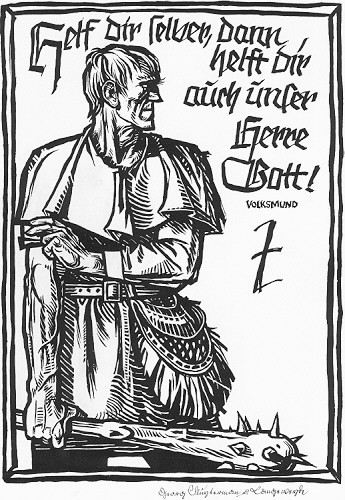
« Dominique Venner donna corps à la pensée la plus exigeante par l’action. Son geste ultime fut l’achèvement du principe directeur de toute une vie, la puissance de la volonté ; celui qui fut l’un des derniers stoïciens nous montre que cette éthique de la volonté est possible. Son exemple, apparemment écrasant, appelle bien au contraire l’élévation. "La vie est comme une pièce de théâtre : ce qui compte ce n'est pas qu'elle dure longtemps, mais qu'elle soit bien jouée." Sénèque. »
Ulysse, militant au M.A.S Savoie
"Au delà de son œuvre, que je connais mal, Dominique Venner représente pour moi un idéal de sérénité face au chaos de la modernité. L'homme qui se tient droit avec la tranquillité du rocher battu par les flots, nous donnant ainsi l'exemple de la forteresse morale que le militant doit édifier pour se prémunir de la corruption du siècle."
Feric, militant au M.A.S Île de France
« Jamais résigné, jamais à genou, Dominique Venner incarne la non résignation, le samouraï d'occident n'a pas sacrifié sa vie en vain, il a insufflé un espoir pour les nouvelles générations, espoir qui mène au combat, combat qui mènera à la victoire »
Capitaine, militant au M.A.S Ile de France
"Dominique Venner a été le contenant et l'allumette. Il nous incombe d'être la poudre et de faire exploser la grandeur des peuples européens. Ton verbe anime ma pensée, ton geste anime mon action."
Dandy, militant au M.A.S Nord
"Pour un homme qui fait de l'intelligence une fin en soi, la valeur d'une action ne se mesure pas à sa réussite, mais à sa capacité à engager encore plus d'action", écrivait Raymond Abellio. Je garderai en mémoire toute ma vie durant le geste de Dominique Venner qui incarne la continuité d'une tradition européenne immémorielle. Sa place est désormais au Panthéon de nos guides. DOMINIQUE VENNER PRESENT."
Énée, militant du M.A.S Nord
"Mes pensées vont aujourd'hui aux descendants de ce grand homme. Dans la grande tristesse qu'ils doivent éprouver, ils ne peuvent qu'être fiers d'un patriarche qui, quelles que soient les circonstances, fût valeureux et honorable même jusqu'aux derniers instants. Il est le "grand-père" que je n'ai jamais eu."
Ghislain, militant du M.A.S. Nord
"Je n’avais jamais pris le temps de me pencher sur les œuvres de Dominique Venner, ni sur sa vie d’ailleurs, je le connaissais tout au plus à travers son geste ultime et les propos de ceux qui m’entourent et transmettent sa pensée.
Me rendre au premier colloque à sa mémoire ce samedi 17 Mai a pour moi été un électrochoc. Bon nombre des vertus qui composaient cet homme trouvent un réel écho en moi, à des strates différentes de ma personnalité. Je compte à présent me lancer dans la lecture de ses écrits en espérant y trouver la manière d’exploiter mieux encore ces vertus afin de donner une nouvelle impulsion à ma quête d’élévation personnelle".
Anne, rédactrice au C.N.C, militante du M.A.S. Nord
« On comprend aisément pourquoi Dominique Venner affectionnait tant la célèbre gravure de Dürer "Le chevalier, la mort et le diable": il ressemblait à ce chevalier. Comme lui, il poursuivait son chemin sans faillir. Comme lui, il incarnait les valeurs qu'il défendait. Comme lui, il savait qu'il ne reculerait pas. Imperméable aux vices d'une époque vide et sans grandeur contre laquelle il s'était rebellé très tôt, il démontra par sa vie et ses œuvres combien celle-ci ne pouvait atteindre ou corrompre ceux qui avaient réellement la volonté de sortir l'Europe de sa "dormition". »
Rüdiger, rédacteur au C.N.C, cadre M.A.S Nord
"J’ai découvert Dominique Venner avec la NRH que je lis régulièrement. Je me suis reconnu dans sa démarche de défense de la civilisation européenne et dans sa vision d‘une histoire structurée par le temps long. Dominique Venner m’est rapidement apparu comme un personnage hors du commun, à la fois admirable et exemplaire. Admirable par son parcours et exemplaire dans son éthique. Il fait partie de ces personnalités qui paraissent vivre dans une époque qui n’est pas la leur et ne les mérite pas. Son geste a résonné avec une puissance que je me remémore régulièrement. J’ai ressenti un choc, celui d’avoir perdu un homme d’exception, pour ne pas dire un maître, mais j’ai aussi, et surtout, ressenti son geste comme un appel, celui de « réveiller les consciences endormies ». Nous tentons de le faire modestement par nos activités militantes. Dominique Venner a allumé une étincelle, à nous tous de faire jaillir les flammes d’où sortira le phénix de l’Europe que nous voulons."
Jean, rédacteur au C.N.C, cadre M.A.S Nord
"Le geste de Dominique Venner est puissant, immense et lumineux. L’écrivain-guerrier et l’historien engagé ont été fondus dans ce qu’Ernst Jünger appelle une Figure. Figure sacrificielle qui exige de tous ceux qui se reconnaissent en elle honneur, courage, détermination, éthique et volonté. Cette protestation héroïque a claqué comme un ordre impérieux. Ce commandement est simple, indiscutable : Servir, se battre et aimer. Servir notre idéal, notre drapeau, la grande Europe. Se battre, affronter sans ciller ceux qui nous nient, qui violent continuellement les principes du sang et de l’esprit. Aimer enfin, aimer sa patrie, les siens au point de sacrifier sa vie pour eux. Ici résident la noblesse et l’éternité."
Arnaud de Robert, porte parole du M.A.S
00:06 Publié dans Hommages, Nouvelle Droite | Lien permanent | Commentaires (0) | Tags : hommages, nouvelle droite, dominique venner |  |
|  del.icio.us |
del.icio.us |  |
|  Digg |
Digg | ![]() Facebook
Facebook
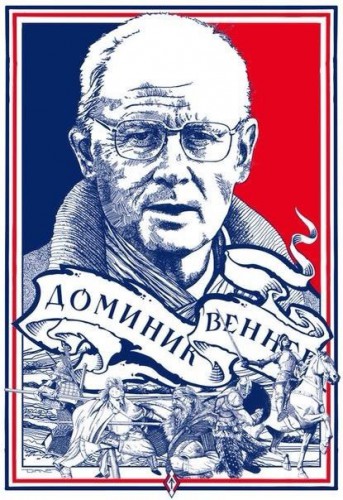
par Philippe Conrad
Ex: http://www.zentropaville.tumblr.com
Quand j’ai fait sa connaissance au début des années 1960, rien ne semblait destiner Dominique Venner à un parcours intellectuel au long duquel l’Histoire allait prendre une place toujours plus grande. Engagé à dix-huit ans dans l’Armée avant d’être entraîné très tôt dans l’action politique, il milite pour l’Algérie française et contre la politique d’abandon alors mise en œuvre par le général De Gaulle, avant de faire l’expérience de la clandestinité et d’effectuer deux longs séjours en prison pour reconstitution de ligue dissoute.
Quand se tourne la page du conflit algérien, il formule sa « critique positive » de l’échec que vient de connaître son camp et s’efforce de créer un mouvement politique porteur d’un « nationalisme » européen qu’il juge nécessaire dans le nouvel ordre du monde en train de s’établir. Les limites de l’action politique lui apparaissent toutefois rapidement et, soucieux de préserver sa pleine indépendance, il y renonce quelques années plus tard. Spécialiste des armes et amoureux de la chasse, de son histoire et de ses traditions, il va dès lors vivre de sa plume en conservant ses distances vis à vis d’un monde dans lequel il ne se reconnaît plus guère. Esprit cultivé et curieux, il est davantage tourné, à l’origine, vers la réflexion politique que vers l’histoire et le jeune militant activiste cherche surtout dans celle des grands bouleversements du XXème siècle les clés d’un présent qu’il entend transformer. L’expérience de l’action, le fait d’avoir été directement mêlé au dernier grand drame de l’histoire française que fut l’affaire algérienne lui ont toutefois fourni de multiples occasions d’observer et de juger les acteurs auxquels il s’est trouvé confronté , d’évaluer concrètement des situations complexes, d’établir le bilan des succès et des échecs rencontrés. Autant d’expériences qui se révèleront utiles ultérieurement pour apprécier des moments historiques certes différents mais dans lesquels certains ressorts fondamentaux identifiés par ailleurs demeuraient à l’œuvre. Cette expérience de terrain, qui fait généralement défaut aux historiens universitaires, combinée avec une exigence de rigueur et une distance suffisante avec son propre parcours, s’est révélée précieuse pour aborder certaines séquences de notre histoire contemporaine, voire des épisodes plus lointains dans le cadre desquels passions et volontés fonctionnaient à l’identique.
Dominique Venner s’est d’abord imposé comme un spécialiste des armes individuelles et c’est en ce domaine qu’il a d’abord séduit un vaste public, en introduisant l’histoire vivante en un domaine où ses pairs limitaient leurs approches aux seules données techniques. Exploitant la grande Histoire des conflits, les aventures personnelles ou les anecdotes significatives, il sut renouveler complètement ce genre bien particulier de la production historique. Ce fut en recourant à une inspiration identique qu’il réussit, auprès d’un vaste public, à rendre à l’art de la chasse sa dimension traditionnelle. Ce fut ensuite à travers l’histoire militaire que l’ancien combattant d’Algérie, qui avait rêvé enfant de l’épopée napoléonienne , retrouva le chemin de la grande Histoire. Il y eut ainsi la collection Corps d’élite qui rencontra auprès du public un succès d’une ampleur inattendue.
Aux antipodes des idées reçues et des préjugés dominants, l’ancien militant se pencha également sur la guerre de Sécession en réhabilitant, dans Le blanc soleil des vaincus, la cause des Confédérés, l’occasion de régler leur compte à quelques mensonges bien établis. En écho aux Réprouvés d’Ernst von Salomon, il y eut ensuite Baltikum, qui retraçait l’épopée des corps francs allemands engagés contre les révolutionnaires spartakistes, puis contre les bolcheviks russes en Courlande et en Livonie. L’intérêt porté à l’histoire de la révolution communiste – la Critique positive de 1962 avait été comparée par certains au Que faire de Lénine - conduit ensuite cet observateur des temps troublés nés de la première guerre mondiale et de la révolution soviétique à se pencher sur la genèse de l’Armée rouge. Il collabore entre temps, avec son ami et complice Jean Mabire, à Historia, la revue du grand public amateur d’Histoire, que dirige alors François-Xavier de Vivie. D’autres travaux suivront. Une Histoire critique de la Résistance, une Histoire de la Collaboration qui demeure l’ouvrage le plus complet et le plus impartial sur la question, Les Blancs et les Rouges. Histoire de la guerre civile russe, une Histoire du terrorisme. Après Le coeur rebelle, une autobiographie dans laquelle il revient sur ses années de jeunesse et d’engagement, il réalise un De Gaulle. La grandeur et le néant.
Au cours des dix dernières années de sa vie et alors qu’il dirige la Nouvelle Revue d’Histoire – créée en 2002 pour succéder à Enquête sur l’Histoire disparue trois ans plus tôt – il oriente ses réflexions vers la longue durée et s’efforce de penser la genèse de l’identité européenne et les destinées de notre civilisation à travers des ouvrages tels que Histoire et tradition des Européens, Le siècle de 1914 ou Le choc de l’Histoire.
Dominique Venner n’était pas un historien « académique » et n’a jamais prétendu l’être mais son insatiable curiosité et l’ampleur du travail de documentation auquel il s’astreignait lui ont permis d’ouvrir des pistes de réflexion nouvelles et de porter un regard original sur la plupart des sujets qu’il a abordés. D’abord tourné vers l’histoire contemporaine – de la Guerre de Sécession aux années quarante en passant par la révolution russe ou les diverses formes que prit le « fascisme « – il a mesuré ensuite le poids de la longue durée en se tournant vers les sources gréco-romaines, celtiques ou germaniques de l’Europe. Il a ainsi trouvé chez Homère une œuvre fondatrice de la tradition européenne telle qu’il la ressentait. Contre l’image largement admise d’une Antiquité unissant l’Orient et la Méditerranée, il distinguait l’existence d’un monde « boréen » dont l’unité profonde, révélée par les études indo-européennes, lui paraissait plus évidente. Il entretenait avec la culture antique, entendue comme allant du IIème millénaire avant J-C au IVème siècle de notre ère, une proximité qu’il entretenait à travers ses contacts et ses échanges avec des auteurs tels que Lucien Jerphagnon, Pierre Hadot, Yann Le Bohec ou Jean-Louis Voisin. Cette approche de la longue durée faisait qu’il inscrivait sa réflexion dans le cadre d’une civilisation européenne antérieure à l’affirmation des Etats nationaux et appelée éventuellement à leur survivre. Contre l’Etat administratif tel qu’il s’est imposé avec Richelieu et Louis XIV, ce « cœur rebelle » rêvait de ce qu’aurait pu être, à la manière du « devoir de révolte » qui s’exprimait dans les frondes nobiliaires, une société aristocratique maintenant les valeurs traditionnelles d’honneur et de service face à celles, utilitaires, portées par l’individualisme et par la bourgeoisie. Il mesurait enfin combien la rupture engendrée par les Lumières et la Révolution française avait conforté la « modernité » apparue en amont, au point de conduire aux impasses contemporaines et à la fin de cycle à laquelle nous sommes aujourd’hui confrontés.
Contre les lectures canoniques, sottement engendrées par l’optimisme progressiste, de ce que fut en réalité le « sombre XXème siècle », il évaluait l’ampleur de la catastrophe survenue en 1914, point de départ de la suicidaire « guerre de trente ans » européenne. Générateur du chaos que l’on sait et de l’effacement de ce qui avait constitué cinq siècles durant, pour reprendre le mot de Valéry, « la partie précieuse de l’Humanité » cet effondrement de la « vieille Europe » n’avait cependant, selon Dominique Venner, rien de fatal. La part d’imprévu que recèle le cours de l’Histoire, tout comme la volonté et le courage de générations capables de renouer avec leur identité faisaient, selon lui, que l’actuelle « dormition » de l’Europe n’était pas, dans le nouvel ordre du monde en train de s’établir, le prélude à sa disparition. Intimement pénétré de la dimension tragique de l’Histoire, l’auteur du Cœur rebelle demeurait convaincu que les seuls combats perdus sont ceux que l’on refuse de livrer. Contre les prophètes ahuris d’une mondialisation heureuse qui vire au cauchemar, les nombreux signaux qui s’allument en Europe et en Russie montrent, en lui donnant raison, que l’avenir n’est écrit nulle part et que les idées et les sentiments qui se sont imposés depuis les années soixante sont en passe de rejoindre les poubelles de l’Histoire. Attaché à sa liberté d’esprit et plaidant pour la lucidité nécessaire à l’historien, Dominique Venner apparaît ainsi, un an après sa disparition, comme le visionnaire inspiré d’une renaissance européenne toujours incertaine mais que l’on peut considérer aujourd’hui comme une alternative vitale au processus mortifère engagé depuis près d’un demi-siècle.
Philippe Conrad
00:05 Publié dans Histoire, Hommages, Nouvelle Droite | Lien permanent | Commentaires (0) | Tags : philippe conrad, dominique venner, nouvelle droite, histoire, hommage |  |
|  del.icio.us |
del.icio.us |  |
|  Digg |
Digg | ![]() Facebook
Facebook

Die Tradition ist eine Wahlentscheidung, ein Flüstern von alten und zukünftigen Zeiten.
Sie enthüllt mir, wer ich bin. Sie erzählt mir, woher ich stamme. Ich stamme aus dem Land des Baums und des Waldes, der Eiche und des Wildschweins, der Rebe und der Schrägdächer, der Epen und der Märchen, der Winter- und der Sommersonnenwende, der blonden Kinder und der hellen Augen, der beharrlichen Taten und der abenteuerlichen Träume, der Eroberungen und der Weisheit. Ich komme aus dem Land, wo man das tut, was man tun muß, aus Achtung vor sich selbst. Deshalb bin ich ein rebellisches Herz, ein Rebell aus Treue.
Wir haben den Komfort, das Wissen und den Überfluß. Doch unsere Städte verdienen diesen Namen nicht mehr, und unsere althergebrachten Vaterländer sind nicht mehr, was sie einmal waren. Das Ausleben, ja: Die Verkultung jeder nur denkbaren Perversität verbietet uns Höflichkeit und Geduld. Das Geld ist zur alleinigen Meßlatte aller Werte geworden. Unter dem Schein der ›Demokratie‹ sind wir nicht frei.
Die Ursachen reichen weit zurück. Doch die Geschichte steht niemals still. Für die Franzosen und Europäer ist die Zeit gekommen, zu erwachen und sich zu befreien. Aber wie? Gewiß nicht durch bloße Flickschusterei an dem, was uns in diese Situation geführt hat. Wenn wir auch keine Religion haben, die uns Halt gibt, so besitzen wir doch seit Homer ein reiches, aber verborgenes Gedächtnis, einen Hort aller Werte, auf die wir unsere künftige Renaissance gründen können.
Vor dem Abgrund, der sich vor unseren Füßen auftut, vor der irren Gefräßigkeit des Finanzsystems sowie der drohenden Gefahr eines Kampfes der Kulturen auf unserem eigenen Boden hat sich das vorliegende ›Brevier‹ zur Aufgabe gemacht, unser Gedächtnis wachzurütteln und uns neue Wege zu eröffnen, anders zu denken, zu leben und zu handeln. Nur so wird ein jeder in der Lage sein, sich in der Treue zu höheren Vorbildern wieder aufzubauen.“
Dominique Venner,
am 12. Mai 2013, neun Tage vor seinem Freitod geschrieben
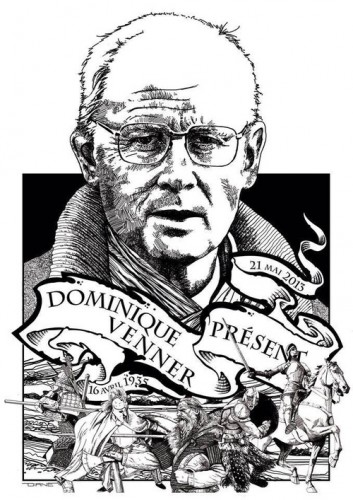
Dominique VENNER, Historiker, Schriftsteller, geboren am 16. April 1935 in Paris, Vater von fünf Kindern. Er veröffentlichte nahezu fünfzig Werke und war Herausgeber der in Frankreich hoch angesehenen Zeitschrift La Nouvelle Revue d’Histoire, die er 2002 gegründet hatte. Die einmal erkannte Berufung diente ihm als Richtschnur seines Lebens. Wie Benoist-Méchin vor ihm führte ihn die kritische Beobachtung der Gegenwart zum Studium der Geschichte. An seinem 18. Geburtstag meldete er sich in der berühmten Militärschule von Rouffach und anschließend als Freiwilliger für den Algerienkrieg, der für seinen Werdegang höchst bedeutsam wurde. 1966 gründete er die Zeitschrift Europe Action, die maßgeblich für die identitäre Revolution in ganz Europa werden sollte. 1970 stellt er seine politischen Aktivitäten ein, wendet sich der meditativen historischen Betrachtung zu und verfaßt bahnbrechende Werke wie Baltikum (1974), den deutschen Freikorps der Jahre 1919‒1923 gewidmet, Histoire et tradition des Européens. 30 000 ans d’identité (2004), Le Siècle de 1914 (2006), Ernst Jünger. Un autre destin européen (2009) und Le Choc de l’Histoire (2011), das als sein geistiges Vermächtnis gilt, ebenso wie das hier vorliegende Brevier, das die Nacht über Europa erleuchten wird von Reykjavik bis Wladiwostok.
www.dominique-venner.net
Dominique Venner erschießt sich am 21. Mai 2013 um 14:42 im Dom von Paris.
In seinem Blog und in einem Brief legte er die Begründung für seinen Freitod dar:
„Ich übergebe mich dem Tod, um die trägen Geister aus ihrem Dämmerschlaf zu wecken.“
Ich bin körperlich und geistig gesund und erfüllt von der Liebe meiner Frau und meiner Kinder. Ich liebe das Leben und habe keinerlei Hoffnungen auf ein Jenseits, allenfalls auf die Fortdauer meiner Rasse und meines Geistes. Da jedoch am Abend meines Lebens mein französisches und europäisches Vaterland in höchster Gefahr schwebt, habe ich mich entschlossen, zu handeln, solange es meine Kräfte zulassen. Ich halte es für notwendig, mich zu opfern, um uns aus der Lethargie zu reißen, die uns gefangenhält. Ich verzichte auf den Rest Leben, der mir noch bleibt, für einen grundlegenden Akt des Protestes. Ich wähle einen hochsymbolischen Ort, die Kathedrale von Notre Dame de Paris, die ich respektiere und bewundere: Das Genie meiner Vorfahren hat sie auf einer Kultstätte errichtet, die viel älter ist und an unsere weit in die Geschichte zurückreichenden Wurzeln erinnert.
Dominique Venner war Schriftsteller und Historiker. Er veröffentlichte an die fünfzig Werke und gab mehrere historische Buchreihen heraus. Er war Herausgeber der Zeitschrift La Nouvelle Revue d’Histoire, die er 2002 gegründet hatte. Seine einmal erkannte Berufung diente ihm als Richtschnur seines Lebens. Er wurde am 16. April 1935 in Paris geboren und war Vater von fünf Kindern. Wie Benoist-Méchin vor ihm führte ihn die kritische Beobachtung der Gegenwart zum Studium der Geschichte. Nach seiner Gymnasialzeit, und vor dem Studium der Kunst- und Waffengeschichte, ging er an seinem 18. Geburtstag zur Militärschule Rouffach im Elsaß. Daraufhin meldete er sich als Freiwilliger für den Algerienkrieg und nahm bis Oktober 1956 an diesem ›mittelalterlichen Kleinkrieg‹ teil, der für seinen Werdegang und sein Heranreifen viel bedeuten sollte, hat er ihn doch ein ganzes Jahrzehnt lang in ein vielfältiges politisches Engagement verwickelt, das in der Gründung der Zeit schrift Europe Action kulminierte. Über diese Zeitspanne in seinem Leben sollte er später sagen:
„Ohne den radikalen Aktivismus meiner Jugend mit seinen Hoffnungen, Enttäuschungen, mißglückten Verschwörungen, ohne das Gefängnis, die Fehlschläge, ohne diese aufregenden und grausamen Erfahrungen wäre ich nie zum meditativen Historiker geworden, der ich heute bin. Erst das völlige Eintauchen in die Welt der Tat mit ihren schmutzigsten und edelsten Seiten hat mich geschmiedet und mich dazu geführt, die Geschichte von innen zu verstehen und zu durchdenken, als Eingeweihter, nicht als Gelehrter, der von belanglosen Dingen besessen ist, oder gar als Zuschauer, der sich vom Schein täuschen läßt.“
Um 1970 herum bricht er mit einem politischen Engagement, das nicht seiner Berufung entsprach. Er verläßt Paris, um in nächster Nähe der Wälder neue Energie aufzunehmen, und gibt im Laufe der Jahre eine große Anzahl Bücher heraus, indem er in jenem Zeitraum die bis dahin wenig erforschte Geschichte der Waffen und der Jagd untersucht (u.v.a. Dictionnaire amoureux de la chasse (Jagdlexikon für Liebhaber, 2000). 1970 leitet er eine historische Buchreihe und unternimmt gleichzeitig Recherchen über die Zeitgeschichte, um seine eigenen Fragen zu beantworten. Diese Arbeiten münden in die Veröffentlichung von Baltikum (1974), den deutschen Freikorps der Jahre 1919–1923 gewidmet (Ein deutscher Heldenkampf, Lübbe, 1978, Arndt, 1984). Später wird er diese Arbeit wieder aufnehmen und erweitern. Das Ergebnis wird Histoire d’un fascisme allemand, 1919–1934 (1996), das insbesondere durch die aufschlußreichen Informationen Ernst Jüngers wesentlich bereichert worden ist. Es werden zahlreiche historische Werke folgen, darunter Le Blanc Soleil des vaincus (Die weiße Sonne der Besiegten, 1975) über den amerikanischen Sezessionskrieg; Histoire de l’Armée rouge (Geschichte der Roten Armee, 1981), preisgekrönt von der Académie française; Gettysburg (1995); Histoire critique de la Résistance (Kritische Geschichte der Resistance, 1995); Les Blancs et les Rouges, Histoire de la guerre civile russe (Die Weißen und die Roten – Geschichte des russischen Bürgerkriegs, 1997, zweite, erw. Auflage 2007); Histoire de la Collaboration (Geschichte der Kollaboration, 2000); Histoire du terrorisme (Geschichte des Terrorismus, 2002); De Gaulle, la grandeur et le néant (De Gaulle, die Größe und das Nichts, 2004); Le Siècle de 1914 (Das Jahrhundert von 1914, 2006). Letzteres Werk stellt den dritten großen Meilenstein auf seinem Weg dar, dem man noch den Essay Ernst Jünger. Un autre destin européen (Ernst Jünger, ein außergewöhnliches europäisches Schicksal, 2009) sowie auch L’Imprévu dans l’Histoire. Treize meurtres exemplaires (Unvorhergesehenes in der Geschichte – Dreizehn beispielhafte Morde, 2012) zurechnen muß.
Parallel zu seinen zeitgeschichtlichen Forschungen veröffentlicht Venner 2002 das Werk Histoire et tradition des Européens. 30.000 ans d’identité (Geschichte und Tradition der Europäer. 30.000 Jahre Identität, 2004), ein fundiertes Buch, das den Ursprung und das Werden der europäischen Kultur – ausgehend von Homer – untersucht.
Nachdem er die Zeitschrift Enquête sur l’histoire (Ermittlungen über die Geschichte, 1991–1999) geleitet hatte, gründete Venner 2002 La Nouvelle Revue d’Histoire (Neue Zeitschrift für Geschichte), die in der Tat dem Inhalt und der Form nach eine Novität war.
„Wir wollten“, so schrieb er, „eine Zeitschrift ins Leben rufen, die Schluß machen würde mit parteiischen oder partiellen Interpretationen der Geschichte, eine Zeitschrift, die eine andere Vision der Vergangenheit und der Zukunft zeichnen und eine europäische Renaissance anstreben würde.“
Einem Leser, der ihn über seine ›optimistische‹ Zukunftsvision befragte, gab Venner folgende Antwort:
„Mein ›Optimismus‹, wie Sie sagen, ist nicht ›blauäugig‹. Ich gehöre nicht einer Gemeinde an, die glaubt, alles werde sich schon geben. Ich bin mir der dunklen Seiten unserer Zeit durchaus bewußt. Ich ahne aber auch, daß die Mächte, die auf das Schicksal der Europäer heute negativ einwirken, in Zukunft von Erschütterungen historischen Ausmaßes untergraben werden. Um zu einem echten Erwachen zu gelangen, werden die Europäer ihr angestammtes Bewußtsein und das lange Gedächtnis, um das sie gebracht worden sind, zurückerobern müssen. Die heraufziehenden Bewährungsproben werden uns dabei helfen, indem sie uns von all dem, was uns von Grund auf infiziert hat, befreien. Zu dieser vermessenen Aufgabe habe ich mich verpflichtet. Sie hat wenig Präzedenzfälle und ist mitnichten politischer Natur. Über meine sterbliche Person hinaus werden die einmal entfachten Flammen nie verlöschen, dessen bin ich sicher.“
In einem Kommentar zu Venners Buch Le Choc de l’Histoire (2011), das als eine Art intellektuellen Vermächtnisses und eine Zusammenfassung seiner Arbeit interpretiert wurde, hat die Zeitschrift Le Spectacle du monde geschrieben:
„Dominique Venner baut geduldig, Stein um Stein, ein überaus originelles Werk auf, dessen Großteil Europa im 20. Jahrhundert gewidmet ist, das in seinem Verlauf mit der entferntesten Vergangenheit des ›alten Kontinents‹, seinem weit zurückreichenden Gedächtnis, seiner tief verwurzelten Tradition in Zusammenhang gebracht wird. So tritt Titel um Titel ein Nachsinnen über das Schicksal Europas und der Europäer zutage.“
00:05 Publié dans Livre, Livre, Nouvelle Droite | Lien permanent | Commentaires (0) | Tags : dominique venner, livre, nouvelle droite |  |
|  del.icio.us |
del.icio.us |  |
|  Digg |
Digg | ![]() Facebook
Facebook
00:05 Publié dans Livre, Livre, Nouvelle Droite | Lien permanent | Commentaires (0) | Tags : livre, dominique venner, nouvelle droite |  |
|  del.icio.us |
del.icio.us |  |
|  Digg |
Digg | ![]() Facebook
Facebook
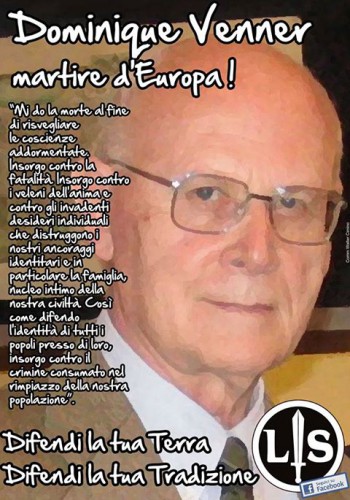
Remembering Dominique Venner:
April 16, 1935–May 21, 2013
By Greg Johnson
Ex: http://www.counter-currents.com
It was one year ago today that French historian and European patriot Dominique Venner ended his life with a bullet on the altar of the Cathedral of Notre Dame in Paris. Venner wished to draw attention to the demographic decline of European man and to indicate what we must be prepared to give to save our people: everything. But his death will be in vain unless it is remembered. So take this day to remember Dominique Venner: his life, his work, and his sacrifice.
Venner’s Last Words:
Tributes to Venner:
Venner’s Writings at Counter-Currents:
More About Venner:
Article printed from Counter-Currents Publishing: http://www.counter-currents.com
URL to article: http://www.counter-currents.com/2014/05/remembering-dominique-venner/
URLs in this post:
[1] Image: http://www.counter-currents.com/wp-content/uploads/2013/06/VennerMemorial.jpg
[2] The Reasons for a Voluntary Death: http://www.counter-currents.com/2013/05/the-reasons-for-a-voluntary-death/
[3] Croatian: http://www.counter-currents.com/2013/06/razlozi-za-dragovoljnu-smrt/
[4] Czech: http://www.counter-currents.com/2013/05/duvody-pro-dobrovolnou-smrt/
[5] Danish: http://www.counter-currents.com/2013/05/arsagerne-til-en-frivillig-dod/
[6] Dutch: http://euro-synergies.hautetfort.com/archive/2013/05/25/afscheidsbrief-van-dominique-venner.html
[7] Finnish: http://www.counter-currents.com/2013/11/syyt-vapaaehtoiseen-kuolemaan/
[8] German: http://www.counter-currents.com/2013/05/begrundung-fur-einen-freitod/
[9] Greek: http://www.counter-currents.com/2013/06/venner-reasons-for-a-voluntary-death-in-greek/
[10] Hungarian: http://www.counter-currents.com/2013/05/dominique-venner-nyilatkozata-egy-szabad-halal-okai/
[11] Italian: http://www.counter-currents.com/2013/05/le-ragioni-di-una-morte-volontaria/
[12] Norwegian: http://www.counter-currents.com/2013/05/en-frivillig-dod-sine-arsaker/
[13] Polish: http://xportal.pl/?p=8482
[14] Portuguese: http://www.counter-currents.com/2013/05/as-razoes-para-uma-morte-voluntaria/
[15] Spanish: http://www.counter-currents.com/2013/05/las-razones-para-una-muerte-voluntaria/
[16] Swedish: http://www.counter-currents.com/2013/05/skalen-for-en-frivillig-dod/
[17] The May 26 Protests and Heidegger: http://www.counter-currents.com/2013/05/the-may-26-protests-and-heidegger/
[18] original: http://www.counter-currents.com/2013/05/la-manif-du-26-mai-et-heidegger/
[19] Czech: http://www.counter-currents.com/2013/05/demonstrace-26-kvetna-a-heidegger/
[20] Finnish: http://www.counter-currents.com/2013/11/avioliittolain-vastustajat-heidegger/
[21] Hungarian: http://www.counter-currents.com/2013/05/a-majus-26-i-tuntetes-es-heidegger/
[22] Portuguese: http://www.counter-currents.com/2013/05/os-protestos-de-26-de-maio-heidegger/
[23] Spanish: http://www.counter-currents.com/2013/05/la-protesta-del-26-de-mayo-y-heidegger/
[24] Tribute to Dominique Venner: http://www.counter-currents.com/2013/06/tribute-to-dominique-venner-2/
[25] here: http://www.counter-currents.com/2013/06/benoist-tribute-to-venner-in-greek/
[26] Interview on Dominique Venner: http://www.counter-currents.com/2013/11/interview-on-dominique-venner/
[27] here: http://www.counter-currents.com/2013/11/entrevista-sobre-dominique-venner/
[28] Tribute to Dominique Venner: http://www.counter-currents.com/2013/06/tribute-to-dominique-venner/
[29] Czech: http://www.counter-currents.com/2013/06/pocta-dominique-vennerovi/
[30] Greek: http://www.counter-currents.com/2013/06/faye-tribute-to-venner-in-greek/
[31] Spanish: http://www.counter-currents.com/2013/10/homenaje-a-dominique-venner/
[32] Suicide in the Cathedral: The Death of Dominique Venner: http://www.counter-currents.com/2013/05/suicide-in-the-cathedralthe-death-of-dominique-venner/
[33] Are Marriage and Children Consumer Goods?: http://www.counter-currents.com/2012/12/are-marriage-and-children-consumer-goods/
[34] Can History Address the Problems of the Future?: http://www.counter-currents.com/2011/08/can-history-address-the-problems-of-the-future/
[35] Christmas: Beauty in Life: http://www.counter-currents.com/2012/12/christmas-beauty-in-life/
[36] Christopher Gérard Interviews Dominique Venner: http://www.counter-currents.com/2013/10/christopher-gerard-interviews-dominique-venner/
[37] Does Identity Depend on Sovereignty?: http://www.counter-currents.com/2012/09/does-identity-depend-on-sovereignty/
[38] Europe and Europeanness: http://www.counter-currents.com/2010/06/europe-and-europeanness/
[39] Finnish: http://www.counter-currents.com/2013/11/eurooppa-ja-eurooppalaisuus/
[40] Greek: http://www.counter-currents.com/2013/08/europe-and-europeanness-greek/
[41] German: http://www.counter-currents.com/2012/02/europa-und-europaertum/
[42] Portuguese: http://www.counter-currents.com/2012/01/europa-e-europeidade/
[43] Europe in Dormition: http://www.counter-currents.com/2010/08/europe-in-dormition/
[44] Part 1: http://www.counter-currents.com/2010/09/for-a-positive-critique-part-1/
[45] Part 2: http://www.counter-currents.com/2010/09/for-a-positive-critique-part-2/
[46] Part 3: http://www.counter-currents.com/2010/09/for-a-positive-critique-part-3/
[47] Part 4: http://www.counter-currents.com/2010/09/part-4/
[48] Part 5: http://www.counter-currents.com/2010/09/toward-a-positive-critique-part-5/
[49] François Mitterrand and the French Mystery: http://www.counter-currents.com/2011/05/francois-mitterrand-and-the-french-mystery/
[50] Part 1: http://www.counter-currents.com/2010/09/homer-the-european-bible-part-1/
[51] Part 2: http://www.counter-currents.com/2010/09/homer-the-european-bible-part-2/
[52] Part 3: http://www.counter-currents.com/2010/09/homer-the-european-bible-part-3/
[53] The Homeric Triad: http://www.counter-currents.com/2010/08/the-homeric-triad/
[54] here: http://www.counter-currents.com/2013/11/a-triade-homerica/
[55] How are Revolutions Born?: http://www.counter-currents.com/2013/04/how-are-revolutions-born/
[56] here: http://www.counter-currents.com/2013/11/wie-werden-revolutionen-geboren/
[57] ‘Indigenous’? How Dare You?: http://www.counter-currents.com/2010/08/how-dare-you/
[58] Czech: http://www.counter-currents.com/2011/10/indigenni-jak-se-jen-opovazujete/
[59] Ukrainian: http://www.counter-currents.com/2011/10/venner-indigenous-ukrainian/
[60] An Internal Clash of Civilizations: http://www.counter-currents.com/2011/01/an-internal-clash-of-civilizations/
[61] Letter to My Friends on Identity and Sovereignty: http://www.counter-currents.com/2012/07/letter-to-my-friends-on-identity-and-sovereignty/
[62] Living in Accordance with Our Traditions: http://www.counter-currents.com/2013/10/living-in-accordance-with-our-tradition/
[63] Love Nature, Love Life: http://www.counter-currents.com/2013/01/love-nature-love-life/
[64] here: http://www.counter-currents.com/2013/09/love-nature-love-life-greek/
[65] Machiavelli and the Conservative Revolution: http://www.counter-currents.com/2013/05/machiavelli-and-the-conservative-revolution/
[66] Machiavelli the European: http://www.counter-currents.com/2011/04/machiavelli-the-european/
[67] here: http://www.counter-currents.com/2011/10/venner-machiavelli-ukrainian/
[68] The Metaphysics of Memory: http://www.counter-currents.com/2010/06/the-metaphysics-of-memory/
[69] here: http://deliandiver.org/2009/06/dominique-venner-metafyzika-pameti.html
[70] Pétain & De Gaulle: Two Figures of a Tragic Destiny: http://www.counter-currents.com/2010/11/petain-and-de-gaulle/
[71] A Posthumous Revenge: http://www.counter-currents.com/2010/06/a-posthumous-revenge/
[72] The Rebel: An Interview with Dominique Venner: http://www.counter-currents.com/2010/06/the-rebel/
[73] here: http://deliandiver.org/2009/12/proc-bychom-se-dnes-nemohli-stat-rebely.html
[74] Secret Aristocracies: http://www.counter-currents.com/2010/06/secret-aristocracies/
[75] Czech: http://deliandiver.org/2009/11/utajena-aristokracie.html
[76] Russian: http://www.ethnopoliticsonline.com/archives/venner/venner%20secret.html
[77] ‘They’re All Rotten’: http://www.counter-currents.com/2013/04/theyre-all-rotten/
[78] Toward a New Aristocracy: http://www.counter-currents.com/2010/08/toward-a-new-aristocracy/
[79] Czech: http://www.counter-currents.com/2011/10/za-novou-aristokracii/
[80] Portuguese: http://www.counter-currents.com/2013/01/para-uma-nova-aristocracia/
[81] The Unforeseen, The Chinese, and the Favorable Moment: http://www.counter-currents.com/2011/11/the-unforeseen-the-chinese-and-the-favorable-moment/
[82] Part 1: http://www.counter-currents.com/2010/11/violence-soft-commerce-part-1/
[83] Part 2: http://www.counter-currents.com/2010/11/violence-and-soft-commerce-part-2/
[84] Part 3: http://www.counter-currents.com/2010/11/violence-and-soft-commerce-part-3/
[85] The Warrior and the City: http://www.counter-currents.com/2011/01/the-warrior-and-the-city/
[86] Portuguese: http://www.counter-currents.com/2013/01/o-guerreiro-e-a-cidade/
[87] Spanish: http://www.counter-currents.com/2012/11/el-guerrero-y-la-ciudad/
[88] The Yogi and the Commissar: http://www.counter-currents.com/2011/09/the-yogi-and-the-commissar/
[89] 2013: A Dark Year Before the Dawn: http://www.counter-currents.com/2014/02/2013-a-dark-year-before-the-dawn/
[90] Another European Destiny: Dominique Venner’s Ernst Jünger: Un autre destin européen: http://www.counter-currents.com/2010/06/another-european-destiny/
[91] Arms and Being: http://www.counter-currents.com/2013/07/arms-and-being/
[92] A Beviary for the Unvanquished: http://www.counter-currents.com/2013/08/a-breviary-for-the-unvanquished/
[93] From Nihilism to Tradition: Dominique Venner’s Histoire et tradition des européennes: http://www.counter-currents.com/2010/06/from-nihilism-to-tradition/
[94] here: http://deliandiver.org/2008/12/michael-omeara-od-nihilismu-k-tradici.html
[95] Foundations of the Twenty-First Century: Dominique Venner’s Le Siècle de 1914: http://www.counter-currents.com/2010/06/foundations-of-the-twenty-first-century/
[96] The Shock of History: http://www.counter-currents.com/2011/11/the-shock-of-history/
00:05 Publié dans Hommages, Nouvelle Droite | Lien permanent | Commentaires (0) | Tags : hommage, nouvelle droite, dominique venner |  |
|  del.icio.us |
del.icio.us |  |
|  Digg |
Digg | ![]() Facebook
Facebook
 Le choc de l’histoire est un ouvrage qui se singularise dans la bibliographie de Dominique Venner pour la simple et bonne raison qu’il se présente comme un recueil d’entretiens où ce dernier aborde plusieurs de ses thèmes phares. Partant de l’axiome que connaître et réfléchir sur le passé permet de comprendre le présent, Venner se propose ici d’explorer l’histoire et d’en retenir ce qui, pour nous Européens d’aujourd’hui, peut nous servir de jalons dans la refondation de notre avenir.
Le choc de l’histoire est un ouvrage qui se singularise dans la bibliographie de Dominique Venner pour la simple et bonne raison qu’il se présente comme un recueil d’entretiens où ce dernier aborde plusieurs de ses thèmes phares. Partant de l’axiome que connaître et réfléchir sur le passé permet de comprendre le présent, Venner se propose ici d’explorer l’histoire et d’en retenir ce qui, pour nous Européens d’aujourd’hui, peut nous servir de jalons dans la refondation de notre avenir.
00:05 Publié dans Livre, Livre, Nouvelle Droite | Lien permanent | Commentaires (0) | Tags : histoire, livre, nouvelle droite, dominique venner |  |
|  del.icio.us |
del.icio.us |  |
|  Digg |
Digg | ![]() Facebook
Facebook
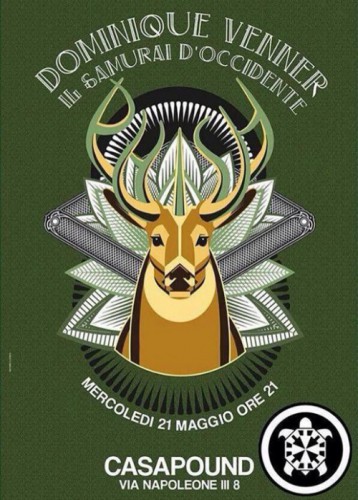
Ex: http://cerclenonconforme.hautetfort.com
Chers amis, chers camarades,
Permettez-moi de vous posez tout d’abord une question un peu… abrupte. Ne vous arrive-t-il pas que le désarroi vous frappe parfois ? Moi, si. Ça m’arrive. À force de toujours nager à contrecourant, à force de toujours aller à l’encontre de l’air du temps, le découragement finit parfois par faire acte de présence. C’est alors que la principale leçon fournie par Dominique Venner nous vient à la rescousse. C’est alors que s’allume cette lueur d’espoir qui se déploie paradoxalement au sein de la critique la plus impitoyable contre la dégénérescence de notre temps.
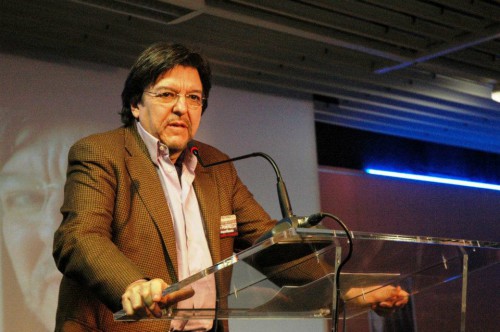 En quoi consiste cette dégénérescence ? Elle consiste dans l’effondrement des trois piliers qui ont fait la force et la grandeur de notre civilisation. « La nature comme socle, l’excellence comme objectif, la beauté comme horizon, nous rappelle Dominique ». Il suffit d’évoquer ces trois grands piliers pour savoir que ni la nature, ni la beauté, ni l’excellence ne soutiennent plus notre maison, ne constituent plus la clé de voûte de notre monde. On dirait qu’ils se sont tout simplement effondrés.
En quoi consiste cette dégénérescence ? Elle consiste dans l’effondrement des trois piliers qui ont fait la force et la grandeur de notre civilisation. « La nature comme socle, l’excellence comme objectif, la beauté comme horizon, nous rappelle Dominique ». Il suffit d’évoquer ces trois grands piliers pour savoir que ni la nature, ni la beauté, ni l’excellence ne soutiennent plus notre maison, ne constituent plus la clé de voûte de notre monde. On dirait qu’ils se sont tout simplement effondrés.
Non, répond Dominique Venner. Les grands piliers du monde semblent certes effondrés, mais ils ne sont qu’« endormis ». Tout comme à l’occasion d’autres moments sombres de notre histoire, nos principes fondateurs sont tombés en état de dormition. Ce qui revient à dire : ils peuvent se réveiller un jour.
Pourquoi le peuvent-ils ? Parce que ce qui est frappé de léthargie, ce sont les archétypes, les racines mêmes de notre civilisation, c’est-à-dire de notre tradition. Et la tradition, « telle que je l’entends, souligne Dominique Venner, n’est pas le passé, mais au contraire ce qui ne passe pas et qui revient toujours sous des formes différentes. Elle désigne l’essence d’une civilisation sur la très longue durée.» C’est pourquoi nos racines son « pratiquement indestructibles tant que n’a pas disparu (comme les Mayas, les Aztèques ou les Incas disparurent un jour) le peuple qui en était la matrice ».
Sauf si une telle hécatombe venait à se produire, la possibilité reste donc ouverte pour que nos principes, aujourd’hui éteints, se rallument – sous des modalités bien sûr différentes – un jour.
Mais de quoi dépend un tel jour ?
Et bien, en un sens, il ne dépend de rien. Il ne dépend de rien parce que l’imprévisible, l’indéterminé, se trouve inscrit – explique Dominique Venner, en fournissant mille exemples concrets – dans le cœur même de l’histoire.
L’imprévisible, ce qui surgit sans cause ni raison, ce que rien ne détermine, voilà qui reçut jadis un nom : le destin, le sort. Cette force déroutante, mystérieuse, à laquelle les dieux eux-mêmes sont soumis – le sort –, nous sera-t-il un jour favorable ? Nous n’en savons rien. Cela n’est pas entre nos mains. Et pourtant, cela aussi est, en un sens, entre nos mains. Contrairement à ce que la modernité croit, la volonté des hommes, certes, n’est pas toute-puissante. Mais le destin non plus. Il a besoin de notre aide. Nous dépendons de lui, mais le destin aussi dépend de nous. Sans notre engagement décidé, sans notre lutte vaillante, jamais le sort ne pourrait nous être favorable.
*
Interrogeons-nous donc sur notre lutte. Sommes-nous en train de faire suffisamment bien les choses ? Sommes-nous à la hauteur du grand défi qui nous a échu, placés que nous sommes à la grande croisée de chemins entre deux époques « dont l’importance, affirmait Ernst Jünger, correspond à peu près au passage de l’âge de pierre à l’âge des métaux » ?
Quels temps étranges, les nôtres ! Le besoin de leur changement se fait sentir de plus en plus fort. Le malaise grandit : ce malaise qui traverse nos existences plates, mornes, privées de tout souffle supérieur, vouées à seulement travailler… et crever. Mais si une telle détresse est bien là, elle est sourde, muette, insaisissable. Son désarroi ne se manifeste, ne se concrétise en rien.
Soyons lucides : aucune véritable alternative ne se lève aujourdhui même à notre horizon. Un seul courant connaît, c’est vrai, une certaine vigueur : le mouvement identitaire. Mais sa dénonciation du grand Remplacement entrepris par nos oligarchies reste un refus, un rejet, une dénonciation seulement négative. Si l’immigration de peuplement venait à disparaître un jour, ce jour-là le mouvement identitaire disparaîtrait du même coup. Aucun véritable Projet historique, aucun OUI ne pointe en-dessous du NON identitaire. (Et on pourrait dire la même chose, toutes différences faites, à propos du NON écologique.)
Pourquoi aucun OUI ne s’élève en-dessous du grand désarçonnement contemporain ?
Ce ne sont pourtant ni les idées ni les analyses qui manquent. Elles sont là, et leur qualité est remarquable. Elles sont là depuis plus de 40 ans : depuis que Dominique Venner, justement, fut l’un des premiers à comprendre, avec d’autres, qu’il fallait passer de l’action directe dans la rue à l’action médiate dans les esprits.
Le problème, voyez-vous, est qu’on n’agit pas sur les esprits à l’aide essentiellement d’idées et de théories… ces trucs « à intellectuels ». On n’agit pas non plus sur les esprits au moyen de dénonciations dépourvues d’une alternative visible, imaginable. On agit sur les esprits à l’aide surtout d’images : d’images positives, pleines de contenu, rayonnantes d’espoir ; des images qui parlent au cœur et frappent l’imagination ; des images qui façonnent tout un Projet historique – encourageant, passionnant.
Avons-nous quelque chose de tel ? Avons-nous une véritable image, un véritable Projet du monde dont nous rêvons ?
Disons-le autrement. Avons-nous une réponse aux deux grandes questions sans répondre auxquelles rien ne pourra jamais changer ?
Première question. Il s’agit d’en finir avec le capitalisme. C’est entendu. Mais qu’est-ce que cela implique ? Qu’est-ce que cela signifie ? Contrairement à ce que cela signifie pour la folie communiste, finir avec le capitalisme ne veut nullement dire liquider la propriété ni abolir l’inégalité. Finir avec le capitalisme veut dire, d’une part, réduire les injustices, limiter les inégalités. Cela veut dire, d’autre part, faire en sorte que le marché, l’argent et le travail ne soient plus la clé de voûte supposée charpenter le monde.
Bien. Mais comment y parvenir ? Y parvient-on en convainquant les gens de se donner d’autres horizons et de lâcher spontanément ce qui paraît être leur penchant naturel pour la matérialité de la vie ? Y parvient-on en faisant que la « société civile » – comme on appelle cette négation manifeste du politique – quitte d’elle-même, toute seule, les chemins qui nous ont menés au bord de l’abîme ? Ou par contre, y parvient-on à travers une lutte acharnée, en ouvrant des voies et en dressant des digues – en créant des institutions : publiques, politiques… mais lesquelles ? – qui mènent nos pas par des chemins tout à fait différents ?
Deuxième question. Ou, plutôt, deuxième avalanche de questions.
« Rien n’est vrai, tout est permis », disait Nietzsche. Rien ne nous offre la garantie… Oh, elle était bien fausse, mais tellement fonctionnelle, la garantie qui, dans le monde la religion révélée, nous assurait du Vrai et du Bien. C’est elle qui a disparu. Le fondement prétendument sans faille, inentamé, du Vrai et du Bien, voilà qui s’est effondré, voilà qui ne reviendra plus. Ce n’est pas d’un état de dormition qu’il s’agit ici. Nous voilà donc voués à l’incertain, à l’imprévu : au destin, en somme. C’est là notre grandeur : celle des hommes libres. Mais c’est là aussi notre malheur : celui des hommes incapables d’assumer une telle liberté.
Car… si aucune Vérité avec majuscule ne soutient plus le monde, tout est-il donc permis ? Non. Il ne l’est ni ne peut l’être – sinon tout s’écroulerait…
Tout s’écroule, en effet. Car il semble bien comme si tout était permis. Tout se vaut… tout se vautre, tout patauge dans l’indistinction généralisée, là où le laid (il suffit d’entrer dans n’importe quelle galerie d’« art » contemporain) semble ne plus s’opposer au beau ; là où le vulgaire semble ne plus se distinguer de l’excellent, tout comme le faux du véritable. Là où même l’idéologie du genre prétend qu’être homme, ce serait la même chose que d’être femme.
Tout devient indifférent dans la mesure même où tout devient discutable, contestable. Dans la mesure même, en un mot, où tout ne relève que de l’opinion. De cette opinion que la liberté dite justement d’opinion permet – en droit – d’exprimer sans entraves ni limites.
Faudrait-il donc introduire des entraves en vue d’empêcher une telle dégénérescence ?
On connaît la réponse – affirmative – que les fascismes ont donnée à une telle question. Mais si on rejette cette réponse, si on refuse un remède qui finit par devenir pire que la maladie, comment fait-on pour ne plus patauger dans la mare du nihilisme où tout se vaut et rien n’importe ?
Aucune société ne peut exister sans être assise sur un noyau incontournable de vérité. Comment concilier un tel noyau avec l’exigence tout aussi incontournable de liberté ? Comment éviter aussi bien les vacuités démocratiques que les dérives totalitaires ? Comment imaginer la vie politique, le contrôle du pouvoir, la réalisation d’une démocratie qui ne soit ni un alibi des oligarchies, ni un machin vide et démagogique ? Comment imaginer, par exemple, le fonctionnement – ou la disparition…, mais alors, remplacés par quoi ? – de ces monstres que sont devenus les partis politiques ?
*
De telles questions, Dominique Venner ne les a pas posées explicitement. Mais toute sa pensée nous y conduit. Nous interroger dans leur sillage, c’est le meilleur, le plus fervent hommage que l’on puisse rendre à celui qui s’est immolé, tout compte fait, pour que la vérité resplendisse.
Javier Portella
Texte prononcé à l'occasion de l'hommage rendu à Dominique Venner, le samedi 17 mai 2014 à Paris.
00:04 Publié dans Hommages, Nouvelle Droite | Lien permanent | Commentaires (0) | Tags : hommage, nouvelle droite, dominique venner, javier ruiz portella |  |
|  del.icio.us |
del.icio.us |  |
|  Digg |
Digg | ![]() Facebook
Facebook
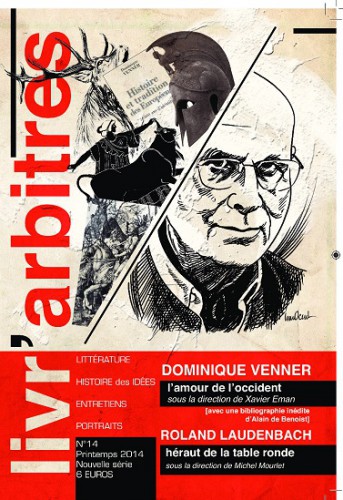
Dominique Venner? Présent!
Un an déjà. Comme le temps passe… Il y a un an, nous apprenions, choqués et incrédules, la mort volontaire de Dominique Venner devant l’autel de Notre-Dame.
Dominique Venner était un homme que l’on était pas obligé de trouver sympathique – son antichristianisme virulent et sa roideur pouvaient notamment heurter – mais que l’on ne pouvait que respecter, voir admirer, pour la rectitude et la cohérence de son engagement, la droiture de son parcours et la grande qualité de ses œuvres et travaux.
Dominique Venner était sans conteste l’une de ces rares personnalités dont la vie est à la hauteur de la production intellectuelle, dont les mots ont toujours été incarnés par des actes, et les valeurs appliquées au quotidien. C’est ainsi que, sans le rechercher, il s’était imposé comme un référent et un modèle pour de nombreux « cœurs rebelles » de toutes générations. Sans doute d’ailleurs, est-ce en partie pour assumer et consacrer pleinement ce statut, qu’il a décidé de faire de sa mort un acte symbolique et une adresse au monde.
Son sacrifice l’a ainsi fait entrer dans un cercle encore plus restreint : celui des hommes qui mettent leur peau au bout de leurs idées.
Sa mort volontaire a prouvé – ou tenté de prouver- que la politique et le combat culturel n’étaient pas que des jeux, une simple agitation ou un divertissement, que les paroles et les écrits pouvaient avoir des conséquences et les engagements des issues tragiques.
C’est au regard de tout cela que nous sommes à la fois heureux et fiers de rendre hommage, dans ce numéro, à ce grand européen qui laisse derrière lui une œuvre foisonnante et stimulante ainsi qu’un éclatant message de courage et de combativité. Puisse la richesse et la diversité des témoignages réunis ici constituer à la fois un chant funèbre et une ode à la vie!
Xavier Eman
(Introduction au dossier « Dominique Venner » in « Livr’arbitres n°14)
00:05 Publié dans Hommages, Nouvelle Droite, Revue | Lien permanent | Commentaires (0) | Tags : hommage, revue, nouvelle droite, dominique venner |  |
|  del.icio.us |
del.icio.us |  |
|  Digg |
Digg | ![]() Facebook
Facebook
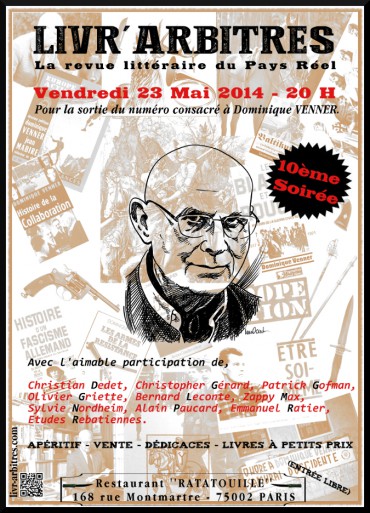
16:51 Publié dans Evénement, Nouvelle Droite | Lien permanent | Commentaires (0) | Tags : événement, nouvelle droite, dominique venner, paris |  |
|  del.icio.us |
del.icio.us |  |
|  Digg |
Digg | ![]() Facebook
Facebook

Ukraine : provocations américaines à la guerre?
Dans l’affaire ukrainienne, la ”politique d’escalade” n’est pas tant celle de Moscou que celle de la junte au pouvoir à Kiev, qui multiplie les provocations et les maladresses parce qu’elle y est encouragée par les Etats-Unis, le ”protecteur” qui joue une carte belliciste. Bien sûr, les Russes ne sont pas des petits saints. Il faudrait être naïf pour croire qu’ils ne sont pas présents derrière les sécessionnistes russophones de Crimée et de l’est de l’Ukraine. Mais enfin, les premiers à chercher l’affrontement, à attiser une guerre civile en Ukraine, ce sont, très habilement, certains groupes de pression américains. Pourquoi ?
La racine de la crise ukrainienne réside dans un ensemble de provocations occidentales (Bruxelles, Otan et USA) déjà à l’œuvre depuis plusieurs années. Le but est de contrecarrer le retour de puissance de la Russie depuis qu’elle est dirigée par Vladimir Poutine, de recréer une situation de guerre froide et d’empêcher à tout prix la Russie – devenue premier exportateur pétrogazier – de s’imposer comme un grand acteur économique. (Voir autres articles précédents de ce blog sur cette question)
Les USA sont un pays complexe, au pouvoir éclaté. En ce moment, ce n’est pas la Maison Blanche qui est à la manœuvre, avec à sa tête le faible et indécis Barack Obama qui n’a jamais été russophobe, c’est un lobby qui regroupe le Pentagone, la CIA et une partie du complexe militaro-industriel. Ce lobby est piloté par deux personnages clé : le vice-président Joe Biden et le sénateur McCain. Ils cherchent à la fois à attiser une guerre civile en Ukraine, et à forcer la Russie à intervenir militairement. Afin de créer l’affrontement avec cette dernière, la pousser à l’erreur, pour l’isoler et la diaboliser sur le plan international.
Les séparatistes ukrainiens du bassin du Don ont réalisé leurs référendums sans l’aval de Vladimir Poutine. Les apprentis sorciers excités du gouvernement de Kiev d’Arseni Iatseniouk n’ont rien trouvé de mieux comme gaffe monumentale que d’envoyer des unités militaires régulières : échec total, les soldats ont fraternisé avec la population. Voyant cela, le ”président” autoproclamé O. Tourtchinov a fait dissoudre les régiments impliqués et envoyé la ”garde nationale”, c’est-à-dire des milices composés d’activistes des mouvements Svoboda et Secteur Droit. Le but était évidemment de provoquer une guerre civile. À Marioupol, les milices ont tiré dans la foule des prorusses ; à Odessa, elles ont incendié un bâtiment. Au total, plus de soixante morts.
Bien entendu, les groupes indépendantistes de l’est, prorusses, ne sont pas des anges vertueux, loin de là, mais ils sont moins encouragés par Moscou que le gouvernement de Kiev ne l’est par Washington. Car derrière la stratégie d’affrontement, il y a le soutien aveugle apporté par le vice-président américain Joe Biden, qui attise les braises. Il y a aussi les mercenaires de la société de sécurité Academi (ex-Blackwater), dépendant de la CIA, envoyés spécialement à Kiev. Cela fait bonne mesure avec les militaires russes camouflés qui seraient derrière les indépendantistes de l’est. Sans oublier le sénateur McCain, indécrottable belliciste, qui excite les irresponsables de Kiev.
D’autre part, l’insistance de Washington pour durcir les sanctions économiques contre la Russie ne gêne nullement l’économie américaine, bien au contraire ; cela ne pénalise que l’Europe et la Russie, ce qui est une aubaine pour l’ ”allié” d’outre-Atlantique (1). Mentionnons aussi l’incroyable ingérence américaine dans les relations franco-russes pour faire annuler le contrat de vente de 1,2 milliards d’euros des bâtiments Vladivostok et Sébastopol destinés à la marine russe. Il s’agit de briser dans l’œuf toute coopération militaire entre l’Europe – en premier lieu la France – et la Russie, cauchemar pour le Pentagone et le complexe militaro-industriel US.
En effet, Washington prend prétexte de cette crise pour cibler l’industrie militaire russe, un des rares secteurs très performants du pays, qui gêne beaucoup les Américains. « Nous allons accroître la pression sur les proches de Vladimir Poutine, les sociétés qu’ils dirigent et l’industrie de la défense », a avoué un des conseillers à la sécurité de la Maison Blanche. L’objectif logique des Américains, à la fois économique et stratégique global, est de casser toute coopération militaro-industrielle entre la France et la Russie, d’étrangler l’industrie de défense russe et de conserver leur monopole d’exportation des armements vers les pays de l’Otan. De leur point de vue, ils ont raison. D’autant plus que le Pentagone s’inquiète de la relance du budget de défense russe par l’administration Poutine : cela contrecarre les espoirs des années 90 (sous la présidence de M. Eltsine, après l’implosion molle de l’URSS) de voir la Russie devenir un nain militaire.
Dans le courrier des lecteurs de Valeurs actuelles (8–14 mai 2014), Xavier Lacroix écrit : « Les Américains ont, stratégiquement parlant, tout intérêt à plonger l’Ukraine dans un conflit civil de moyenne intensité pour en imputer la responsabilité à la Russie tout en l’empêchant d’y intervenir. Il est certain que la Russie voit d’un œil favorable ces villes qui se rebellent contre l’autorité de Kiev, mais il est faux d’affirmer que la Russie soutient une stratégie d’escalade. Je ne suis pas là dans un antiaméricanisme primaire ou dans une idolâtrie poutinienne candide. » Bonne analyse.
Comme toujours, les USA jouent avec le feu. Mauvais joueurs de poker, comme ils l’ont montré en Afghanistan, en Irak, en Lybie, en Somalie, en Syrie ou ailleurs, leur interventionnisme ne débouche que sur des échecs. Leur politique étrangère, belliciste, impérialiste, naïve provoque guerres et déstabilisations. Mais, avec cynisme, elle est au moins fondamentalement nationaliste. (2) L’intérêt de la France et de l’Europe est, sur le dossier ukrainien, de se découpler des USA et de résoudre le problème entre nous, avec les Russes. Cette question ne regarde pas les Américains.
La russophobie américaine est complètement contraire aux intérêts européens. Comme je l’ai dit à plusieurs reprises dans d’autres écrits, l’idéal serait que la France, conjointement avec l’Allemagne, renoue avec une politique gaullienne : dégagement de l’Otan et axe Paris-Berlin-Moscou. On en est loin, très loin, dans cette Europe d’où toute grande politique est absente, où les petits politiciens règnent en maîtres, où la politique étrangère se résume aux Droit-de-l’hommisme et à l’obéissance à l’Otan, filiale du Pentagone, où les frontières ouvertes ne laissent pas seulement passer les productions du monde entier mais un déversement migratoire invasif, où le simulacre de démocratie – c’est-à-dire l’oligarchie – a étouffé la voix des peuples.
Si l’Amérique est un mauvais joueur de poker, au moins c’est un joueur acharné qui veut gagner. L’Europe donne l’impression non seulement de ne pas connaître les règles du jeu et de s’en remettre aux autres, mais, pis encore, de vouloir perdre.
1) Les échanges russo-américains ne représentent que 1% du commerce extérieur des USA, 40 milliards de dollars, contre 460 milliards pour l’UE. 18 pays européens dépendent à plus de 50% du gaz russe. Les Américains (cf. autre article de ce blog) pensent aussi à l’exportation de leur gaz de schiste en Europe…
2) Peu d’analystes (sauf américains) l’ont compris : les politiques étrangère, mais aussi économique des USA sont beaucoup plus nationalistes et impérialistes que celles de la Russie. On ne peut pas le reprocher à Washington, simplement il faut en tirer les conséquences.
00:05 Publié dans Actualité, Affaires européennes, Géopolitique, Nouvelle Droite | Lien permanent | Commentaires (0) | Tags : guillaume faye, nouvelle droite, ukraine, affaires européennes, europe, politique internationale, russie, états-unis, otan, atlantisme |  |
|  del.icio.us |
del.icio.us |  |
|  Digg |
Digg | ![]() Facebook
Facebook
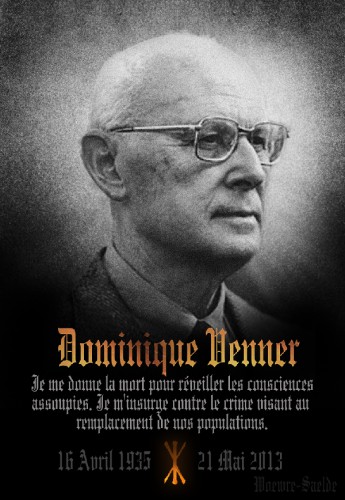
Pierre Le Vigan
L'hommage à Dominique Venner
La considérable affluence au colloque Dominique Venner (plus de 500 personnes à la Maison de la Chimie ce 17 mai), la qualité des interventions à la tribune laisse entrevoir un mouvement de sursum corda mais aussi de sursum ratio. « Elévation des cœurs, et élévation de notre raison. Par un acte en apparence irrationnel, mais en fait logique, Dominique Venner a ouvert une voie : celle du sacré, celle, aussi, de la hauteur de vue. La hauteur de vue n’est pas l’indifférence, elle n’est pas le refus de s’engager, elle est la froideur dans la perception des enjeux, qui va volontiers avec la chaleur de la camaraderie. La mort sacrificielle de Dominique Venner, il y a un an, à Notre-Dame de Paris, a précisément ce sens précis : ouvrir un espace du sacré. Ce que croyait précieux Dominique Venner ce n’était ni la droite ni la gauche, c’était la France et l’Europe comme civilisation, c’était le sens même de ce que patrie veut dire, et de ce qu’honneur veut dire. Car l’honneur, en un sens, c’est toujours filiation et transmission. Or, c’est tout cela, avec l’effacement du sens, avec le relativisme généralisé, avec le changement de peuple par l’immigration de masse, qui est mis à bat par la modernité ravageuse. Et par une politique criminelle, celle du mondialisme comme système à tuer les peuples. Changer notre peuple dans sa composition ethnique et culturelle pour tuer toute notion de peuple, dépolitiser tout pour ne laisser que la table rase du turbocapitalisme se déployant sur fond de grand marché universel, avec des hommes interchangeables, et d’ailleurs interchangés et inter-échangés, sans passé, sans héritage, sans histoire, et donc sans avenir. Avec un seul présent : celui de consommateur et de producteur. Avec des femmes louant leur ventre, et des hommes vendant leur sperme. Voilà le monde dont Venner ne voulait pas. Sain refus. Mais aussi portait-il une grande espérance, la lueur d’un autre monde possible, poétique, fort, tragique, noble, plein des exemples héroïques qui agrandissent nos petites vies pour leur donner un souffle, une ampleur, une dimension mythique. Nous ne guérirons jamais de Dominique Venner, et c’est pour cela que nous resterons vivants.
PLV
Pierre Le Vigan, écrivain, philosophe, vient de publier L’effacement du politique. La philosophie politique et la genèse de l’impuissance de l’Europe, la barque d’or, labarquedor@hotmail.fr, 15 €.
00:05 Publié dans Hommages, Nouvelle Droite | Lien permanent | Commentaires (0) | Tags : hommage, dominique venner, nouvelle droite |  |
|  del.icio.us |
del.icio.us |  |
|  Digg |
Digg | ![]() Facebook
Facebook
00:05 Publié dans Nouvelle Droite, Revue | Lien permanent | Commentaires (0) | Tags : fascisme, nouvelle droite, revue, elementos |  |
|  del.icio.us |
del.icio.us |  |
|  Digg |
Digg | ![]() Facebook
Facebook
 Le numéro 59 de TERRE & PEUPLE Magazine est centré autour du thème mobilisateur Pourquoi l'Eurasie ?
Le numéro 59 de TERRE & PEUPLE Magazine est centré autour du thème mobilisateur Pourquoi l'Eurasie ?
Communication de "Terre & Peuple-Wallonie"
Dans éditorial sur 'le communautarisme identitaire', Pierre Vial évoquant les communautarismes qui déchirent l'Afrique, constate l'échec total de la 'nation arc-en-ciel, promise par Mandela à l'Afrique-du-Sud. Entre temps, le reste de l'Afrique s'explique à la kalachnikov.
Ouvrant le dossier sur l'Eurasie, Pierre Vial souligne les incohérences de la pensée d'Alexandre Douguine, porte-voix de l'eurasisme que relaye Alain de Benoist. Poutine en a fait la promotion pour étayer la dimension continentale de son ambition patriotique. Comme ce projet tend à légitimer le métissage, nous adoptons de préférence le mythe mobilisateur du réveil des peuples blancs de l'Eurosibérie. Une raison de plus pour une présentation objective du concept d'Eurasie.
Robert Dragan fait le relevé des peuplements européens en Asie et mesure l'entité géographique, dominée par des Européens, qui déborde sur l'Asie. Les archéologues révèlent la présence, dès -3500AC, dans l'Altaï mongol d'une culture identique à celle, plus récente, des Kourganes, pratiquée par des dolichocéphales de race blanche. Plus près de nous (-1500AC), les Tokhariens du Tarim (ouest de la Chine) étaient des Indo-Européens blonds, qui parlaient une langue de type scandinave et tissaient des tartans écossais. Strabon et Ptolémée les citent. Au début de notre ère, les Scythes qui occupaient l'ouest sibérien avaient détaché vers le Caucase la branche des Alains, qui y subsistent de nos jours sous le nom d'Ossètes. A l'ère chrétienne, le mouvement va s'inverser avec les migrations des Huns, Alains, Wisigoths, Petchénègues et Tatars. Jusqu'à ce que, au XIIe siècle, Gengis Kahn et ses descendants dominent la Russie. Jusqu'à ce que, au XVIe siècle, les tsars, à la suite d'Ivan le Terrible, se dotent d'une armée disciplinée. La reconquête reposera sur l'institution de la caste guerrière des cosaques, hommes libres, notamment d'impôt. Cavaliers voltigeant aux frontières, ils renouent avec une tradition ancestrale. Après qu'ils se soient emparés de Kazan, capitale des Tatars, des pionniers ont pu s'enfoncer au delà de la Volga dans les profondeurs sibériennes. Chercheurs d'or mou (les fourrures), ils y ont établi des forts et des comptoirs commerciaux. Réfractaires à la réforme liturgique et persécutés, les Vieux Croyants s'y sont enfuis pour fonder des colonies. Les Russes ne sont alors en Sibérie que des minorités infimes ( 200.000 au XVIIe siècle), sauf dans le Kazakhstan, mais dominantes. Le Transsibérien (1888-1904) va provoquer une expansion explosive : les comptoirs deviennent des métropoles. La Sibérie compte aujourd'hui quarante millions d'habitants, dont 94% de Russes, 1% d'Allemands et 0,02% de Juifs. A l'égard des îlots d'asiates, Poutine se comporte comme l'a fait la Grande Catherine II, dans le respect de leur identité culturelle et religieuse. La seule inquiétude vient de l'immigration incontrôlée des Chinois, qui s'insinuent dans le commerce de détail et l'artisanat. Le projet d'une Eurosibérie, enthousiasmant pour un Européen de l'Ouest, éveille la méfiance en Russie, qui n'a pas oublié les envahisseurs polonais, suédois, teutoniques, autrichiens, prussien et français. Comment se confondre avec un Occident qui l'a constamment trahi ?
Alain Cagnat s'autorise de Vladimir Volkoff pour remarquer qu'il existe sur 180° de la circonférence terrestre une terre peuplée majoritairement de Blancs marqués par le christianisme. L'Europe n'est qu'une minuscule péninsule à l'ouest de l'Eurasie. Mise à part l'île britannique, hantée par son obsession séculaire de tenir les mers et d'entretenir la division du continent, depuis que Mackinder l'a convaincue que « Qui tient le Heartland tient le monde ». La puissance anglo-saxonne vise à contrôler la mer et le commerce et par là la richesse du monde. Elle a gagné les deux guerres mondiales, qui ont consacré la castration des puissances européennes et la partition du continent, en un Occident 'libre' et une 'tyrannie'. L'implosion inespérée de celle-ci, en 1990, a évacué la hantise d'un holocauste nucléaire. L'Occident s'identifie alors à un monde américanisé et globalisé, tueur des peuples, à remplacer désormais par un 'village-monde' d'heureux consommateurs crétinisés. La Russie et la Chine ne se laissent pas séduire, pas plus que l'Iran ni le monde arabo-sunnite. Les Etats-Unis organisent alors leur 'Containment'. Par les révolutions de couleur, orchestrées par les ONG de la démocratie et des Droits de l'Homme, et par l'extension de l'Union européenne et de l'Otan. Par des opérations de déstabilisation de Poutine et par un bouclier antimissile, censé protéger contre une agression de l'Iran ! La Chine fait l'objet d'un encerclement maritime. L'Union européenne, géant économique, mais nain politique et larve militaire, n'est plus qu'une banlieue des Etats-Unis. Elle n'en demeure pas moins le seul cadre possible pour notre idée d'empire. Poutine n'a-t-il pas dit : « La Grande Europe de l'Atlantique à l'Oural, et de fait jusqu'au Pacifique, est une chance pour tous les peuples du continent. » Moscou se voit comme la Troisième Rome et la gardienne de l'orthodoxie chrétienne. Mais les Russes sont d'opinions partagées. Il y a les occidentalistes, prêts à moderniser la Russie millénaire. Il y a les slavophiles, férus du mysticisme de l'âme slave, qui avec Soljenitsine méprisent volontiers le pourrissoir occidental. Il y a les eurasistes, qui avec Douguine jugent que l'Europe n'a pas à s'intégrer à l'Eurasie. L'empire eurasiste est multiethnique. Il place les autres peuples au même rang que les Russes et juge les autres religions égales à l'orthodoxie. En conclusion : l'Europe doit revoir sa stratégie et renverser ses alliances. Elle dépend des Russes pour un quart de son pétrole et un tiers de son gaz et 80% des investissements étrangers en Russie sont européens. En dressant un nouveau Rideau de Fer, l'Union européenne fracasse sur l'autel de l'utopie mondialiste américaine le rêve de l'unité européenne. Celle-ci devrait, de préférence, ne pas se réaliser dans l'orientation eurasiste grand-russe d'un mélange des races et des ethnies européennes et asiatiques, mais dans celle d'un axe Paris-Berlin-Moscou du continent uni sous l'hégémonie pan-européenne.
Jean-Patrick Arteault attend des élections européennes que l'Union européenne voie punies ses trahisons et son partenariat avec une finance apatride qui s'auto-désigne comme l'Occident. Le but des vrais Européens est d'acquérir la puissance d'assurer à leurs peuples leur développement culturel et social. Il est acquis qu'ils ont perdu la guerre et que leur 'Père-Fondateur' Jean Monet s'est révélé être l'homme des Américains, familier des mondialistes anglo-américains. L'UE s'affaire à la mise en place du Grand Marché transatlantique, base du futur Etat occidental qui confirmera une domination anglo-saxonne irréversible. C'est la réalisation de grand projet de Cecil Rhodes et de Milner. Ce GMT alignera les normes européennes sur les normes américaines, en toutes matières, tant de sécurité que sanitaire, environnementale, sociale, financière. 2014 doit être le tournant de la nouvelle Guerre Froide, nourrie de deux visions géopolitiques antagonistes : le projet mondialiste de l'Occident et le projet d'Union eurasiatique de Poutine, lequel souhaitait y inclure l'Ukraine. L'eurasisme russe est divisé entre Occidentalistes, partisans du modernisme, et Slavophiles, réfractaires aux Lumières occidentales et qui voient la vraie Russie dans la synthèse de la slavité médiévale et d'une Eglise orthodoxe qui a médiatisé l'apport des Grecs. Pour les slavophiles, c'est le lieu d'enracinement qui est finalement décisif, le Boden pesant alors plus que le Blut. Poutine a entre temps mis sur pied l'Organisation du traité de sécurité collective, pour la défense mutuelle de la Russie, de la Biélorussie, de l'Arménie, du Kazakhstan, du Kirghizistan, de l'Ouzbékistan et du Tadjikistan. En regard de l'idée eurasiste, le concept d'Eurosibérie a été forgé en 2006 par Guillaume Faye et Pierre Vial en réponse à ce que Carl Schmidt appelle un « cas d'urgence », l'affrontement des peuples blancs à tous les autres. C'est le mythe mobilisateur d'un empire confédéral, ethniquement homogène et autarcique, avec la Russie au centre.
Roberto Fiorini dénonce la trahison de l'Union européenne, qui s'attaque aux revenus du travail salarié, en violation de son objectif originel, qui est, aux termes du Traité de Rome, l'amélioration des conditions de vie des travailleurs, en évitant notamment des zones pauvres à chômage élevé et à salaires bas, qui incitent à délocaliser les activités, à mettre les salariés en compétition. Le ré-équilibrage des régions est un échec et l'Acte Unique de 1986 a ouvert la libre circulation des personnes et des capitaux, premier pas vers la mondialisation. La compétition des salaires introduit l'abandon de leur indexation. Dès 1994, l'OCDE prônait la flexibilité des salaires, la réduction de la sécurité de l'emploi et la réforme de l'indemnisation du chômage. L'appauvrissement et la précarisation des ménages amorce une spirale infernale. La BCE, gardienne du temple, veille par la modération salariale que l'inflation reste proche de zéro. Les syndicats, qui ont accompagné le grand projet de mondialisation, sont rendus quasiment inefficaces et réduits à un simulacre d'opposition. Au profit de multinationales, qui pillent sans contribuer.
Alexandre Delacour révèle que le nouvel OGM TC1507 est légalement commercialisé malgré une large opposition d'Etats membres (67%) et d'eurodéputés (61%), qui légalement devaient représenter 62% de la population de l'Union et n'en représentaient que 52,64% ! Paradoxalement, les petits pays sont moins dociles aux lobbies semenciers, qui mettent le monde agricole en servage, la santé publique en péril (la fertilité des spermatozoïdes des Européens en chute vertigineuse :-30%).
Claude Valsardieu poursuit son relevé des peuplements blancs hors d'Europe. Sur le flanc sud des forêts et toundras sibériennes, les Scytes et leur prédécesseurs les civilisations successives des Kourganes (IVe millénaire AC) de l'Ukraine à l'Altaï. La civilisation des oasis, dans le bassin du Tarim, et la civilisation de l'Indus (du IIe au IVe millénaire AC). Ensuite, la désertification facilita l'installation d'Aryens et la nomadisation de hordes conquérantes vers l'ouest : Huns blancs d'Attila, Turcs blancs seldjoukides, Mongols de la Horde d'Or. En Afrique septentrionale, à partir de 3000 AC, la seconde vague mégalithique pénètre en force en Méditerranée. Qu'étaient les hommes du Sahara humide néolithique ? A la période des chasseurs ont succédé la période des pasteurs bovidiens et celle du cheval avec l'arrivée des Peuples de la Mer, dont l'écrasement par Ramsès III est célébré sur les bas-reliefs de Medinet Abou.
00:05 Publié dans Actualité, Affaires européennes, Nouvelle Droite, Revue | Lien permanent | Commentaires (0) | Tags : nouvelle droite, terre et peuple, eurasie, eurasisme, pierre vial, revue, europe, affaires européennes, russie |  |
|  del.icio.us |
del.icio.us |  |
|  Digg |
Digg | ![]() Facebook
Facebook
|
00:10 Publié dans Entretiens, Nouvelle Droite | Lien permanent | Commentaires (0) | Tags : entretien, dominique venner, nouvelle droite |  |
|  del.icio.us |
del.icio.us |  |
|  Digg |
Digg | ![]() Facebook
Facebook
Nous vous signalons la parution du septième numéro (Hiver 2014) de la belle revue Figures de proues, dirigée par Pierre Bagnuls. On y découvrira des textes choisis et une foule de citations sur le thème de l'Europe et du nihilisme européen, agrémentés par de superbes illustrations en couleurs. Du beau travail !
Il est possible de s'abonner ou de commander ce numéro (ainsi que les numéros précédents) sur le site de la revue : Figures de proues
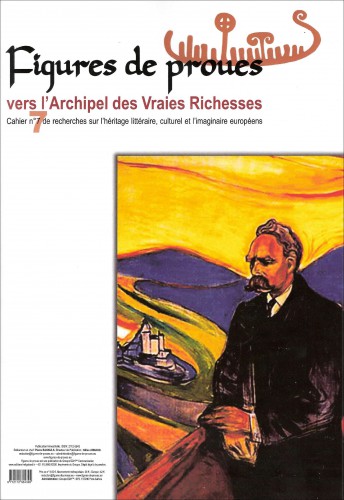
Au sommaire :
Éditorial
• Europe - 9 novembre 1989: la cicatrice concentrationnaire fut
symboliquement refermée par Pierre BagnulsL'auteur, la société, la liberté
• La pensée remonte les fleuves par Charles-Ferdinand Ramuz
Figure
• Face au soleil de minuit: un solstice d'été septentrional d'après Marc Augier, par Pierre Bagnuls
Hommage
• En mémoire de Dominique Venner par Pierre Bagnuls
Les sources vives
• Le nihilisme est devant la porte: d'où nous vient ce plus inquiétant de tous les hôtes? par Pierre Bagnuls
Textes fondateurs
• Changement de paradigme et crise de la conscience européenne par Alexandre Koyré
• Commencer avec le soleil par David Herbert Lawrence
• Le monde paraît sans valeur par Friedrich Nietzsche
• Fondements du nihilisme européen par Jean-Edouard Spenlé
• Tout est venu à l'Europe et tout en est venu par Paul Valéry
• Quels rêves a faits l'homme? par Paul Valéry
•Ce que nous savons, ce que nous pouvons, a fini par s'opposer à ce que nous sommes par Paul Valéry
Texte dé-fondateur
• Extraits des discours sur l'Europe de Julien Benda
Propos sur la dé-fondation européenne
• Des dangers d'une intelligence désincarnée et inorganique:
le nihilisme en pensées et en actes par Pierre Bagnuls
00:05 Publié dans Nouvelle Droite, Revue | Lien permanent | Commentaires (0) | Tags : revue, france, figures de proue, nihilisme, nihilisme européen, nouvelle droite |  |
|  del.icio.us |
del.icio.us |  |
|  Digg |
Digg | ![]() Facebook
Facebook
10:22 Publié dans Livre, Livre, Nouvelle Droite, Révolution conservatrice, Synergies européennes | Lien permanent | Commentaires (0) | Tags : robert steuckers, radio courtoisie, révolution conservatrice, livre, nouvelle droite, synergies européennes, allemagne, histoire |  |
|  del.icio.us |
del.icio.us |  |
|  Digg |
Digg | ![]() Facebook
Facebook
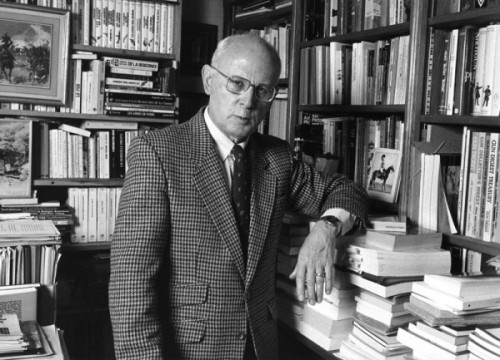
Entretien avec Jean-Yves Le Gallou
Dominique Venner: un fabuleux professeur d’énergie…
Ex: http://www.voxnr.com
Jean-Yves Le Gallou, vous allez assister, samedi 17 mai à 14 h 30, au colloque consacré à Dominique Venner, à la Maison de la chimie à Paris à l’invitation de l’Association pour l’histoire. Expliquez-nous pourquoi…
|
notes |
| (1) http://www.dominiquevenner.fr/2014/04/colloque-dominique-venner-ecrivain-et-historien-au-coeur-rebelle-le-17-mai-2014-a-paris/ |
|
source |
Boulevard Voltaire :: lien
00:05 Publié dans Entretiens, Nouvelle Droite | Lien permanent | Commentaires (0) | Tags : france, entretien, jean-yves le gallou, dominique venner, nouvelle droite |  |
|  del.icio.us |
del.icio.us |  |
|  Digg |
Digg | ![]() Facebook
Facebook
A bâtons rompus avec Robert Steuckers
Uccle, mai 2014
Par les animateurs du Cercle "L'Heure Asie"
( http://lheurasie.hautetfort.com )
08:11 Publié dans Actualité, Entretiens, Nouvelle Droite, Réflexions personnelles, Synergies européennes | Lien permanent | Commentaires (0) | Tags : robert steuckers, nouvelle droite, synergies européennes, actualité, entretiens |  |
|  del.icio.us |
del.icio.us |  |
|  Digg |
Digg | ![]() Facebook
Facebook
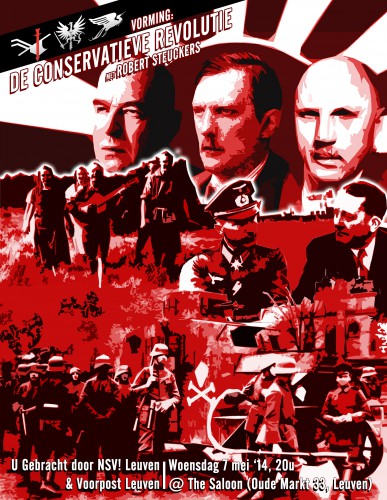
00:09 Publié dans Evénement, Nouvelle Droite, Révolution conservatrice, Synergies européennes | Lien permanent | Commentaires (0) | Tags : robert steuckers, révolution conservatrice, nouvelle droite, synergies européennes, allemagne, événement, louvain, leuven |  |
|  del.icio.us |
del.icio.us |  |
|  Digg |
Digg | ![]() Facebook
Facebook